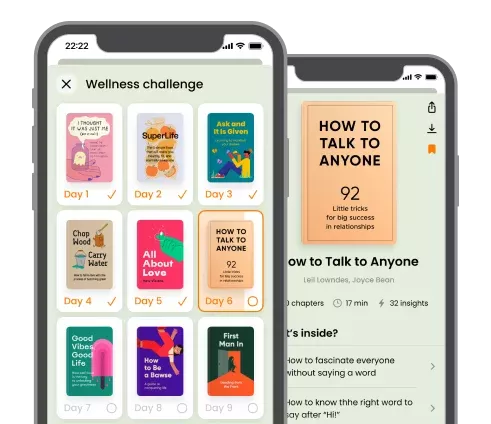40 Best Environmentalism Books
Discover a wide range of environmentalism books that delve into pressing issues, inspiring readers to take action and protect our planet.
 1
1Design for the Real World
by Victor Papanek
What is Design for the Real World about?
"Design for the Real World" by Victor Papanek explores the intersection of design, human ecology, and social change. Papanek challenges conventional design practices and advocates for a more responsible and sustainable approach. With a focus on the impact of design on society and the environment, this thought-provoking book urges designers to prioritize the needs of people and the planet, offering practical solutions for creating a better world through design.
Who should read Design for the Real World
Designers and architects seeking to create sustainable and socially responsible solutions.
Environmentalists and activists interested in the intersection of design and ecology.
Students and scholars studying the impact of design on society.
 2
2Entangled Life
by Merlin Sheldrake
What is Entangled Life about?
"Entangled Life" explores the fascinating and often overlooked world of fungi, revealing their profound impact on our planet and our lives. From their intricate networks that connect plants and trees to their ability to break down pollutants and even alter our consciousness, Merlin Sheldrake takes readers on a captivating journey into the hidden realms of these remarkable organisms. This thought-provoking book sheds light on the immense power of fungi to shape our futures and transform our understanding of the natural world.
Who should read Entangled Life
Biologists and scientists interested in the intricate world of fungi.
Nature enthusiasts seeking a deeper understanding of the fungal kingdom.
Environmentalists and sustainability advocates exploring the vital role of fungi.
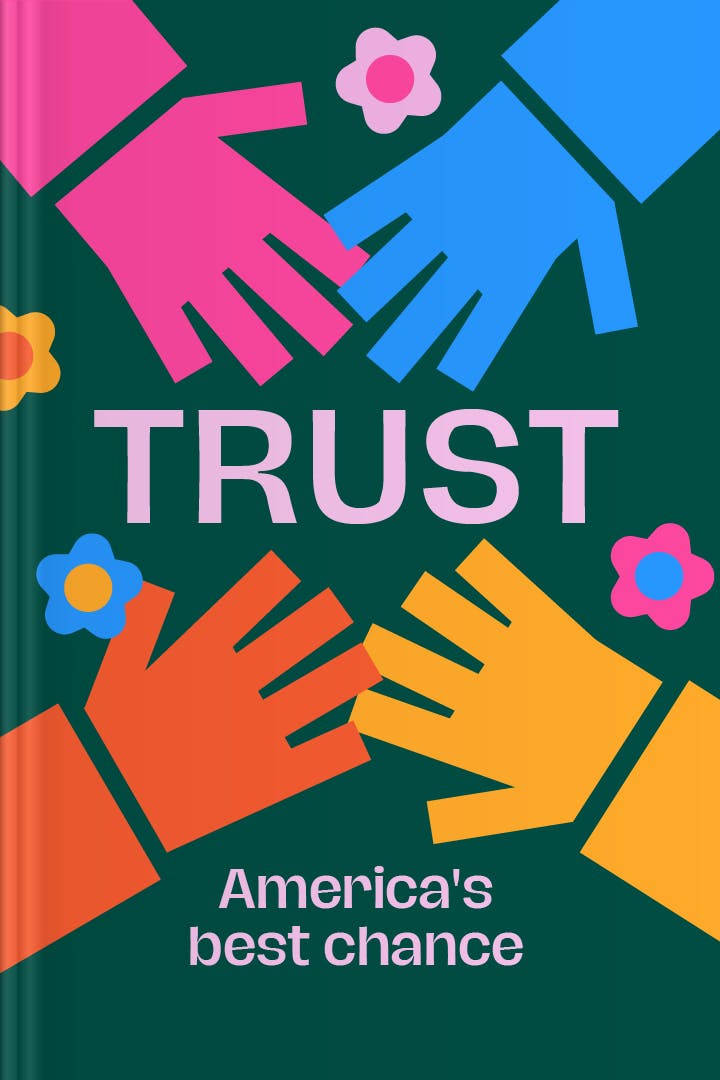 3
3Trust
by Pete Buttigieg
What is Trust about?
In "Trust: America's Best Chance," the author delves into the importance of trust in rebuilding and strengthening the United States. Pete Buttigieg explores how trust is the foundation for progress, unity, and effective governance. Drawing from his own experiences as a former mayor and presidential candidate, Buttigieg offers insightful perspectives on how trust can be restored in a divided nation, ultimately presenting a compelling vision for a more inclusive and prosperous America.
Who should read Trust
Citizens seeking a fresh perspective on rebuilding trust in America.
Political enthusiasts interested in Pete Buttigieg's vision for trust.
Individuals looking for practical solutions to restore faith in democracy.
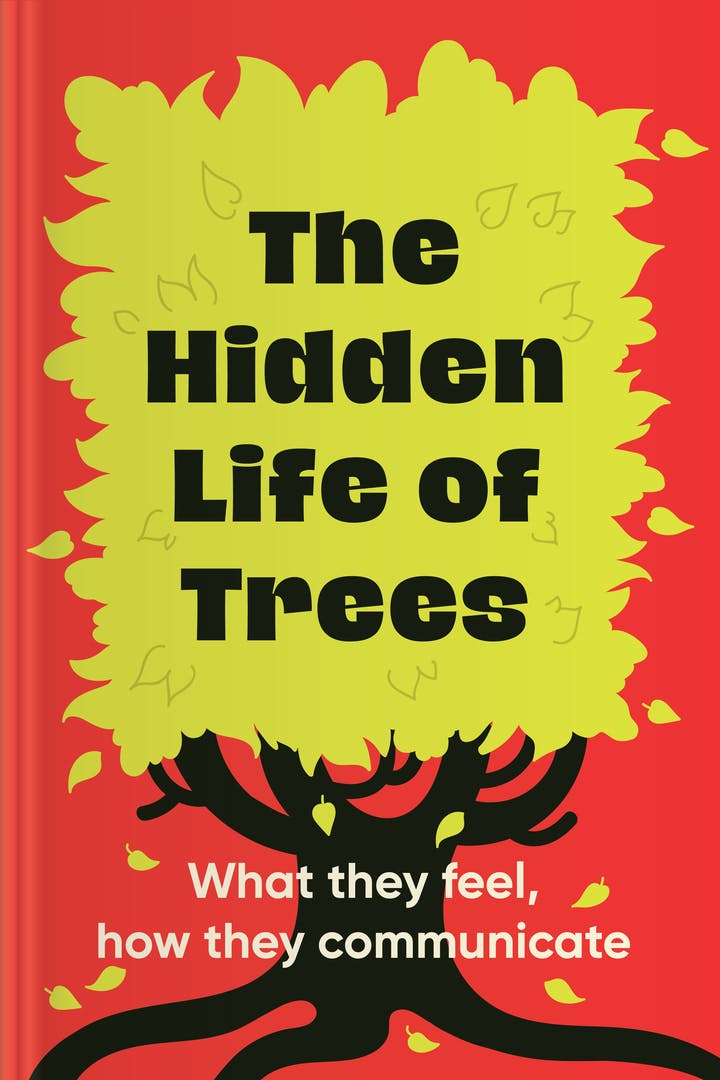 4
4The Hidden Life of Trees
by Peter Wohlleben
What is The Hidden Life of Trees about?
In this captivating exploration of the natural world, the author delves into the hidden lives of trees, revealing their astonishing abilities and complex social networks. From their ability to communicate and share resources to their capacity to feel pain and form nurturing relationships, Wohlleben uncovers the secrets of these ancient organisms. With a blend of scientific research and personal anecdotes, this book offers a profound understanding of the intricate and interconnected world of trees.
Who should read The Hidden Life of Trees
Nature enthusiasts seeking a deeper understanding of the intricate lives of trees.
Environmentalists looking to explore the interconnectedness of forests and ecosystems.
Curious individuals interested in uncovering the mysteries of the natural world.
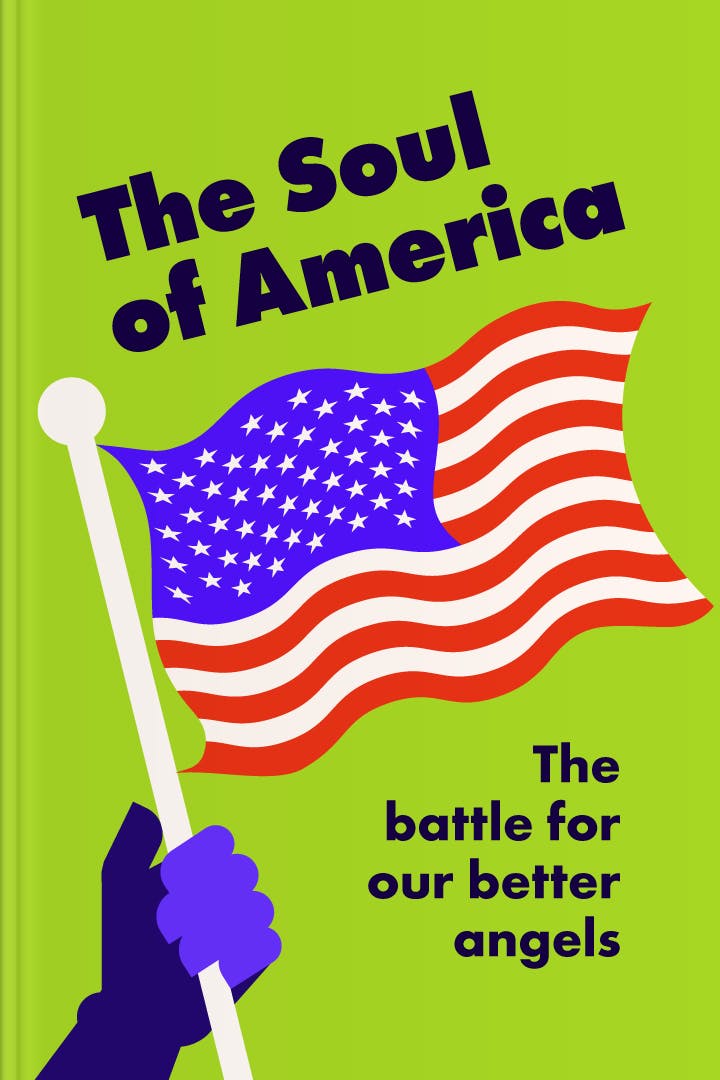 5
5The Soul of America
by Jon Meacham
What is The Soul of America about?
"The Soul of America: The Battle for Our Better Angels" by Jon Meacham explores pivotal moments in American history where the nation faced challenges to its core values and principles. Through a compelling narrative, Meacham delves into the struggles and triumphs that shaped the country, highlighting the resilience and resilience of the American spirit. This thought-provoking book serves as a reminder of the ongoing battle for progress and the importance of embracing our shared values.
Who should read The Soul of America
History enthusiasts seeking a deeper understanding of America's past.
Citizens concerned about the current state of American democracy.
Individuals interested in exploring the power of empathy and unity.
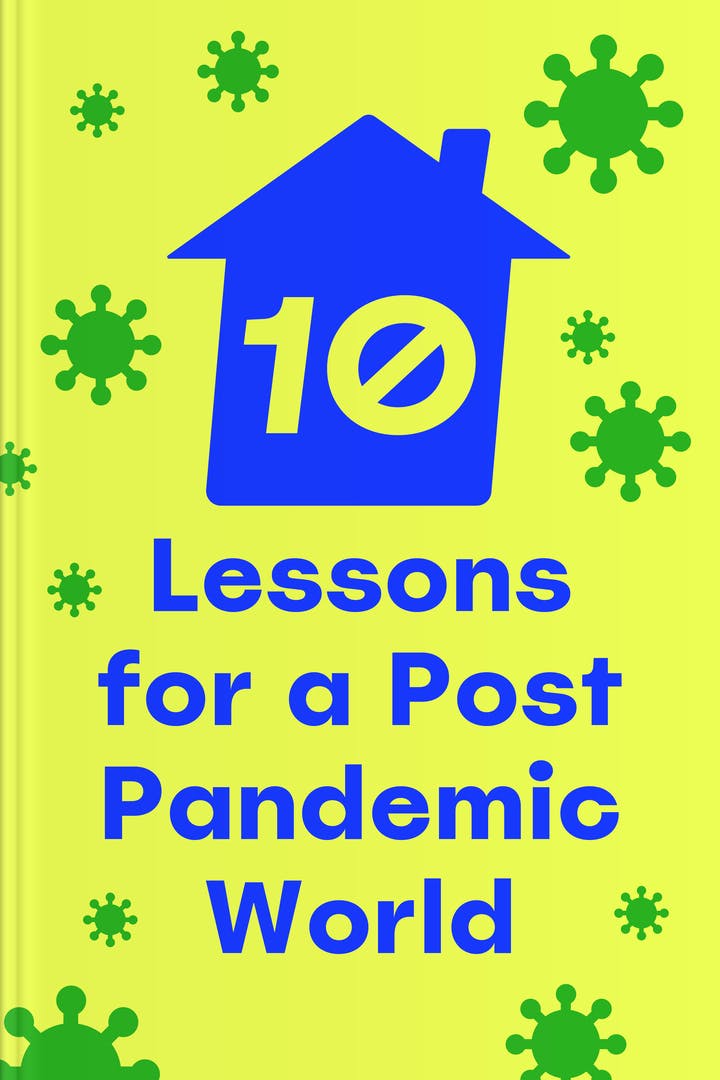 6
6Ten Lessons for a Post-Pandemic World
by Fareed Zakaria
What is Ten Lessons for a Post-Pandemic World about?
In this thought-provoking book, a renowned author and journalist offers invaluable insights into the challenges and opportunities that lie ahead in a post-pandemic world. Through ten compelling lessons, he explores the impact of the pandemic on various aspects of our lives, including politics, technology, and globalization. With a keen eye for detail and a global perspective, the author provides a roadmap for navigating the uncertain future and building a more resilient and inclusive world.
Who should read Ten Lessons for a Post-Pandemic World
Individuals seeking a comprehensive understanding of the global impact of pandemics.
Policy makers and leaders looking for insights on navigating post-pandemic challenges.
Students and academics interested in analyzing the societal implications of pandemics.
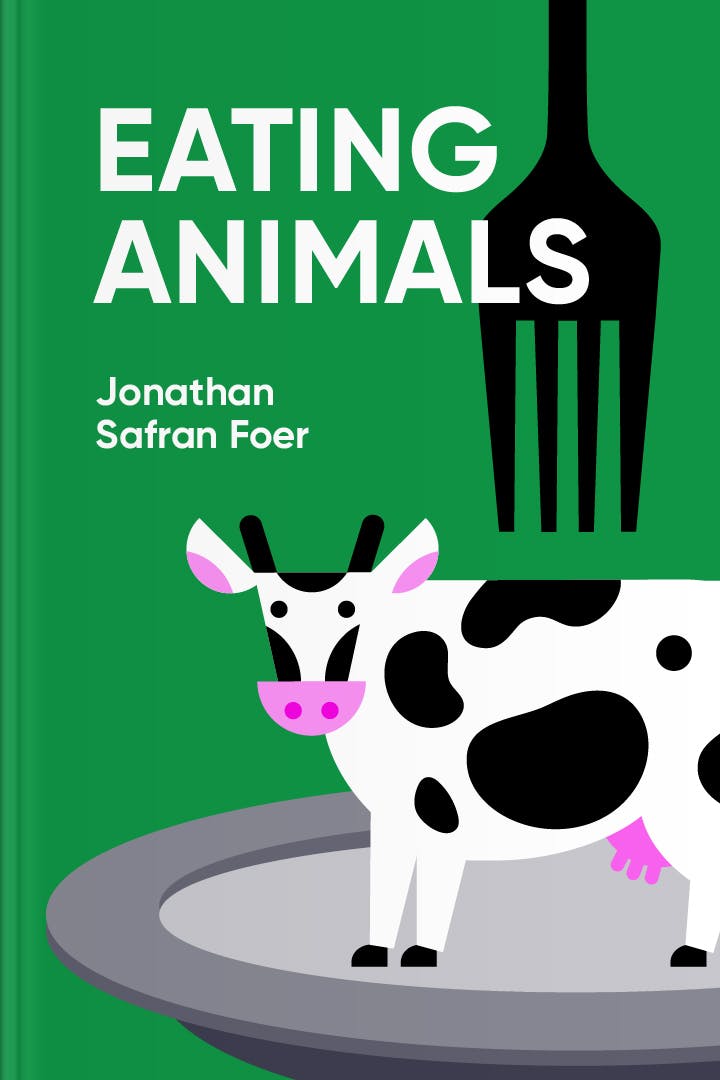 7
7Eating Animals
by Jonathan Safran Foer
What is Eating Animals about?
In this thought-provoking book, the author delves into the complex and often hidden world of factory farming and its impact on our food choices. Through personal anecdotes, investigative journalism, and philosophical reflections, he challenges readers to confront the ethical, environmental, and health implications of consuming animals. With a blend of compassion and critical analysis, "Eating Animals" invites us to reevaluate our relationship with food and consider the consequences of our dietary decisions.
Who should read Eating Animals
Individuals interested in understanding the ethical implications of consuming animal products.
Environmentalists seeking to explore the impact of factory farming on the planet.
Those looking to make informed choices about their dietary habits.
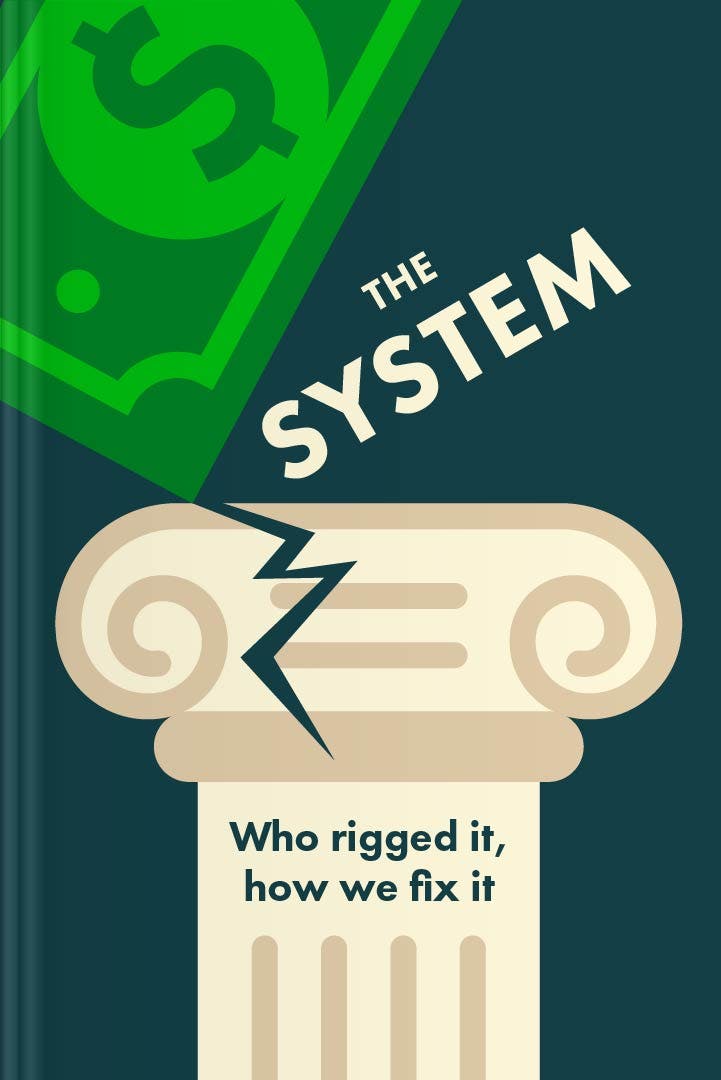 8
8The System
by Robert B. Reich
What is The System about?
"The System" by Robert B. Reich is a thought-provoking book that delves into the intricate workings of our economic and political systems. Through a comprehensive analysis, Reich exposes the hidden forces and individuals responsible for rigging the system in favor of the wealthy and powerful. With compelling arguments and insightful solutions, he offers a blueprint for fixing the system and creating a more equitable society for all.
Who should read The System
Individuals interested in understanding the flaws and solutions of the current economic system.
Policy makers and politicians seeking insights into economic reform.
Anyone concerned about income inequality and social justice issues.
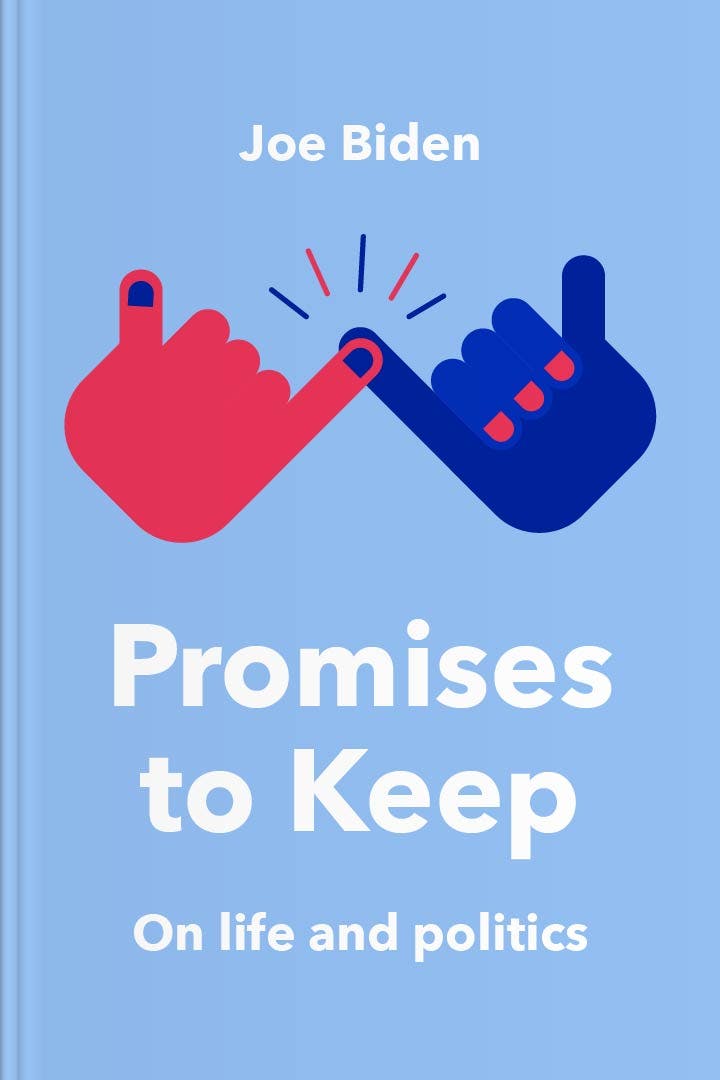 9
9Promises to Keep
by Joe Biden
What is Promises to Keep about?
In this compelling memoir, the author reflects on his life and political career, offering a unique perspective on the challenges and triumphs he has faced. From his humble beginnings to his time as Vice President of the United States, Joe Biden shares personal anecdotes and insights into the world of politics. With a focus on the importance of integrity and empathy, this book is a testament to his enduring commitment to public service.
Who should read Promises to Keep
Political enthusiasts seeking insights into Joe Biden's life and career.
History buffs interested in understanding the political landscape of America.
Individuals curious about the personal experiences and values that shaped Joe Biden.
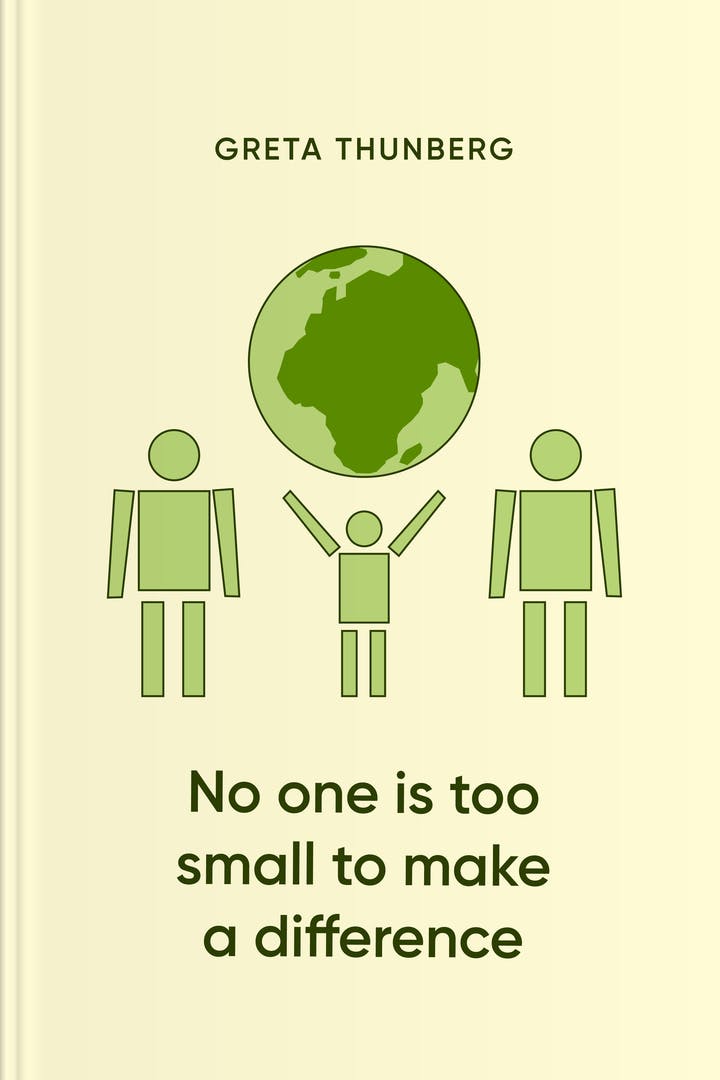 10
10No One is Too Small to Make a Difference
by Greta Thunberg
What is No One is Too Small to Make a Difference about?
In this powerful collection of speeches, a young activist fearlessly addresses the urgent global crisis of climate change. Greta Thunberg's passionate words inspire readers to take action, as she emphasizes that every individual, regardless of age or status, has the power to make a difference. With unwavering determination, Thunberg's book serves as a rallying cry for a sustainable future, urging us all to join the fight against environmental destruction.
Who should read No One is Too Small to Make a Difference
Young activists seeking inspiration and guidance on climate action.
Environmentalists looking for a powerful call to action against climate change.
Individuals interested in understanding the impact of individual actions.
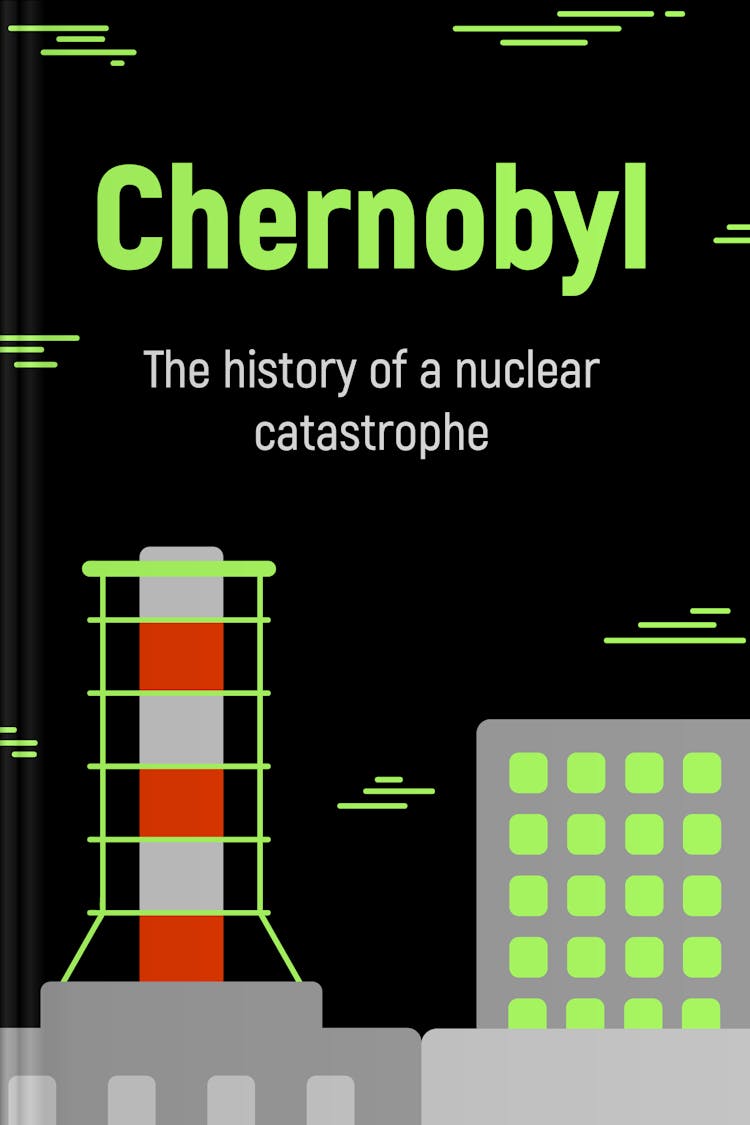 11
11Chernobyl
by Serhii Plokhy
What is Chernobyl about?
"Chernobyl: The History of a Nuclear Catastrophe" delves into the gripping account of one of the world's worst nuclear disasters. Serhii Plokhy meticulously uncovers the events leading up to the catastrophic explosion at the Chernobyl nuclear power plant in 1986, exploring the political, scientific, and human factors that contributed to the tragedy. With meticulous research and compelling storytelling, Plokhy sheds light on the devastating consequences and long-lasting impact of this unprecedented disaster.
Who should read Chernobyl
History enthusiasts interested in understanding the Chernobyl disaster.
Environmentalists concerned about the impact of nuclear accidents.
Researchers and scholars studying the consequences of nuclear catastrophes.
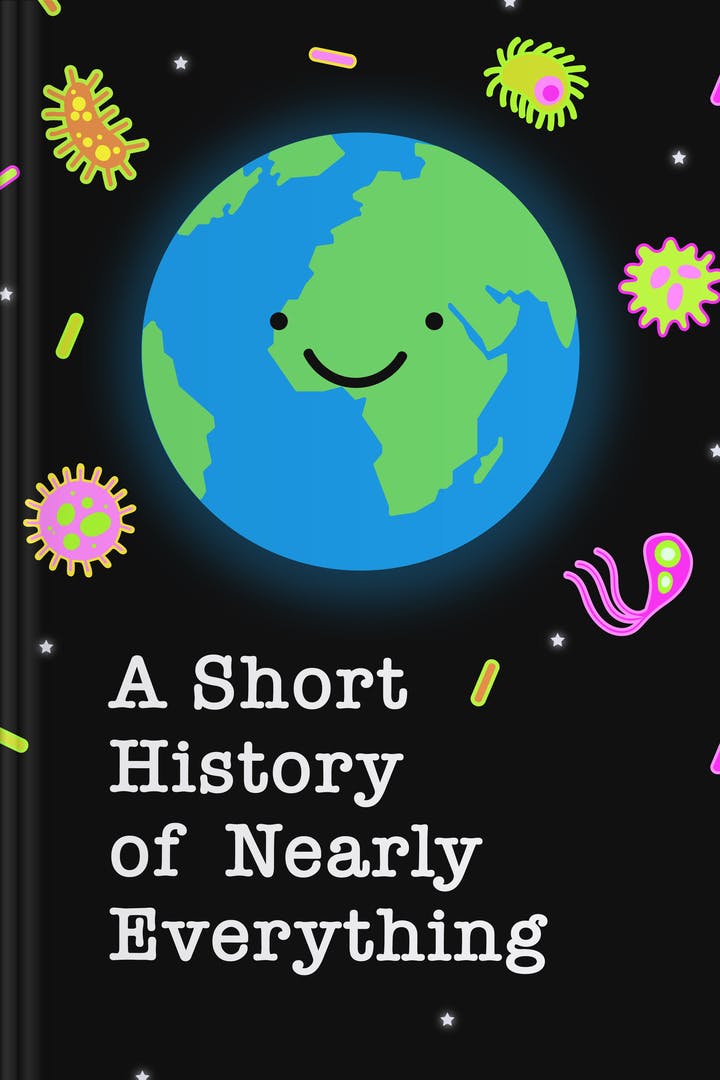 12
12A Short History of Nearly Everything
by Bill Bryson
What is A Short History of Nearly Everything about?
"A Short History of Nearly Everything" is a captivating exploration of the scientific discoveries that have shaped our understanding of the world. Written by a renowned author, this book takes readers on a journey through time, unraveling the mysteries of the universe, the origins of life, and the fascinating stories of the scientists who made groundbreaking contributions. With wit and clarity, it presents complex concepts in an accessible manner, making it a must-read for anyone curious about the wonders of our existence.
Who should read A Short History of Nearly Everything
Science enthusiasts seeking a comprehensive and engaging overview of the universe.
Curious individuals eager to explore the wonders of our world.
Students and educators looking for an accessible science reference book.
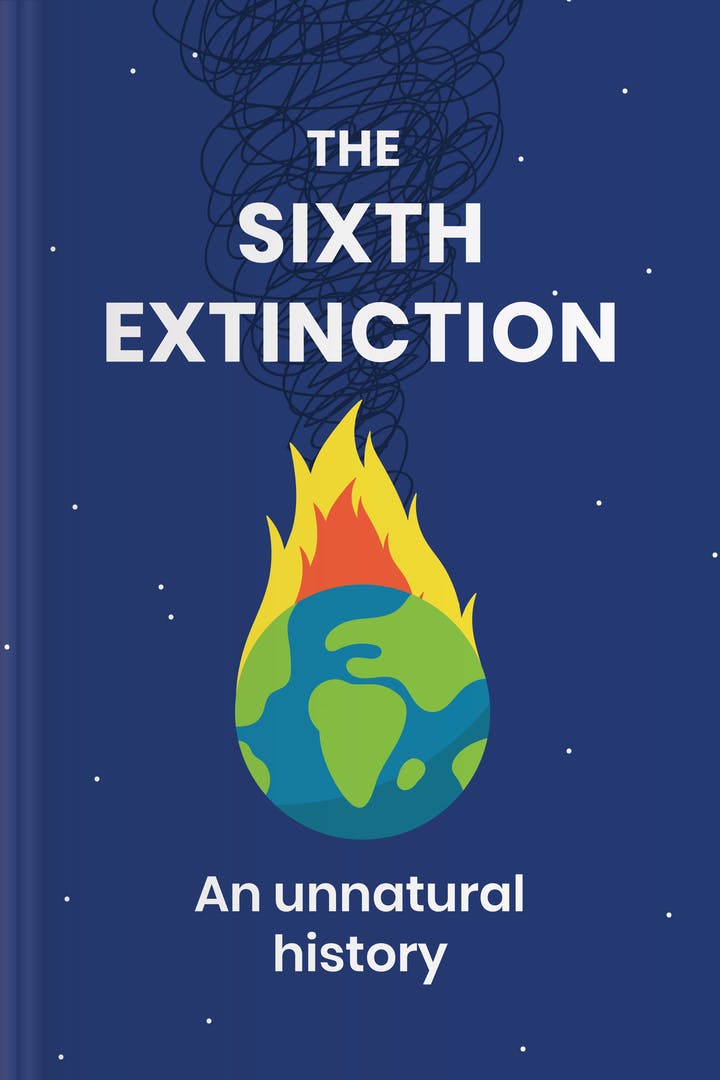 13
13The Sixth Extinction
by Elizabeth Kolbert
What is The Sixth Extinction about?
"The Sixth Extinction: An Unnatural History" by Elizabeth Kolbert explores the alarming reality of Earth's ongoing sixth mass extinction event. Through captivating storytelling and scientific research, Kolbert delves into the devastating impact of human activities on the planet's biodiversity. From the extinction of various species to the potential consequences for humanity, this thought-provoking book sheds light on the urgent need for environmental awareness and action to prevent further irreversible damage to our fragile ecosystems.
Who should read The Sixth Extinction
Environmentalists and conservationists interested in understanding the current state of biodiversity loss.
Science enthusiasts seeking a comprehensive exploration of the Earth's past mass extinctions.
Policy makers and educators looking for insights into the consequences of human activities on the planet.
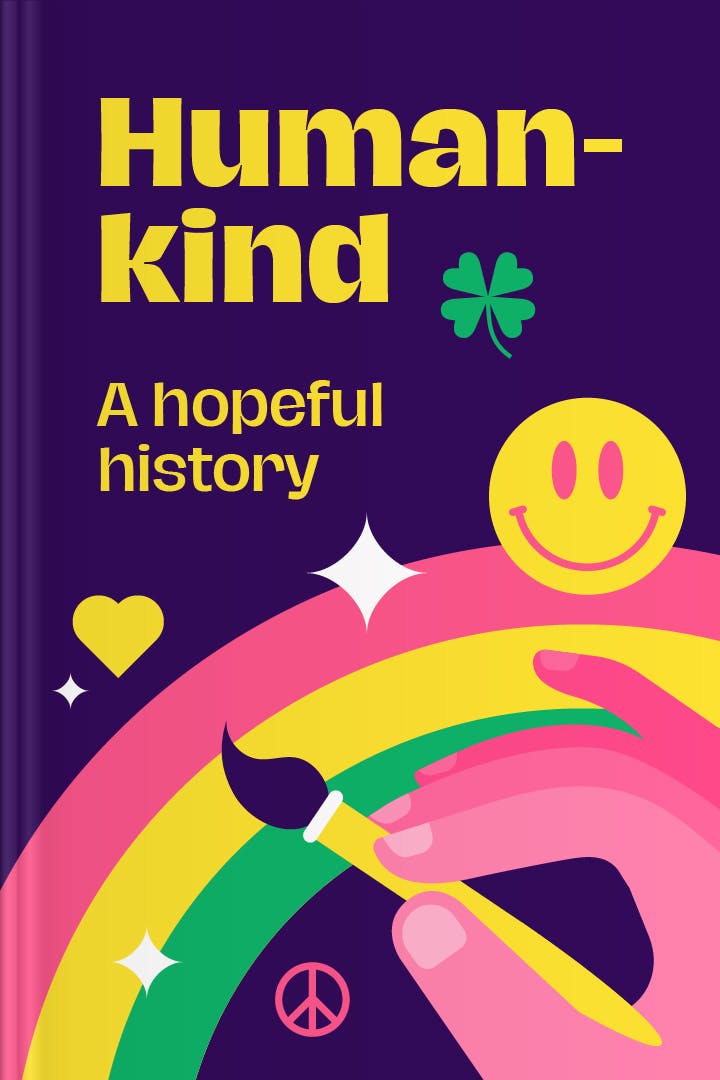 14
14Humankind
by Rutger Bregman
What is Humankind about?
In this thought-provoking book, Rutger Bregman challenges the prevailing belief that humans are inherently selfish and driven by self-interest. Drawing on a wealth of historical evidence and psychological research, he presents a compelling argument that humans are fundamentally good and cooperative beings. Bregman explores how this understanding can reshape our society, offering a hopeful vision for a more compassionate and empathetic future.
Who should read Humankind
Anyone seeking a fresh perspective on human nature and society.
Social scientists and historians interested in reevaluating humanity's potential.
Individuals looking for inspiration and hope in turbulent times.
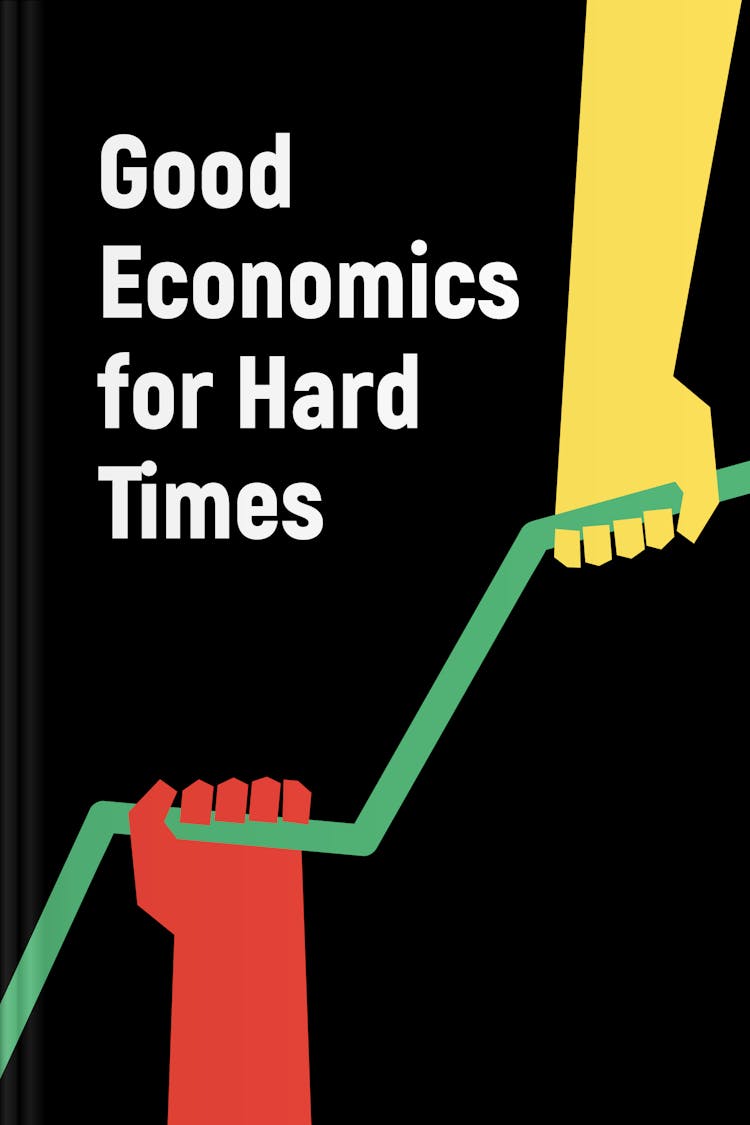 15
15Good Economics for Hard Times
by Abhijit V. Banerjee, Esther Duflo
What is Good Economics for Hard Times about?
"Good Economics for Hard Times" offers a fresh perspective on the pressing issues of our time, such as inequality, immigration, and climate change. Written by two Nobel laureates in economics, this book presents evidence-based solutions to tackle these challenges, debunking common myths and providing practical insights. With a focus on real-world problems and the impact on everyday people, it offers a compelling and accessible analysis of how economics can shape a better future for all.
Who should read Good Economics for Hard Times
Economists and policymakers seeking evidence-based solutions for challenging times.
Individuals interested in understanding the impact of economics on everyday life.
Students and academics studying the intersection of economics and social issues.
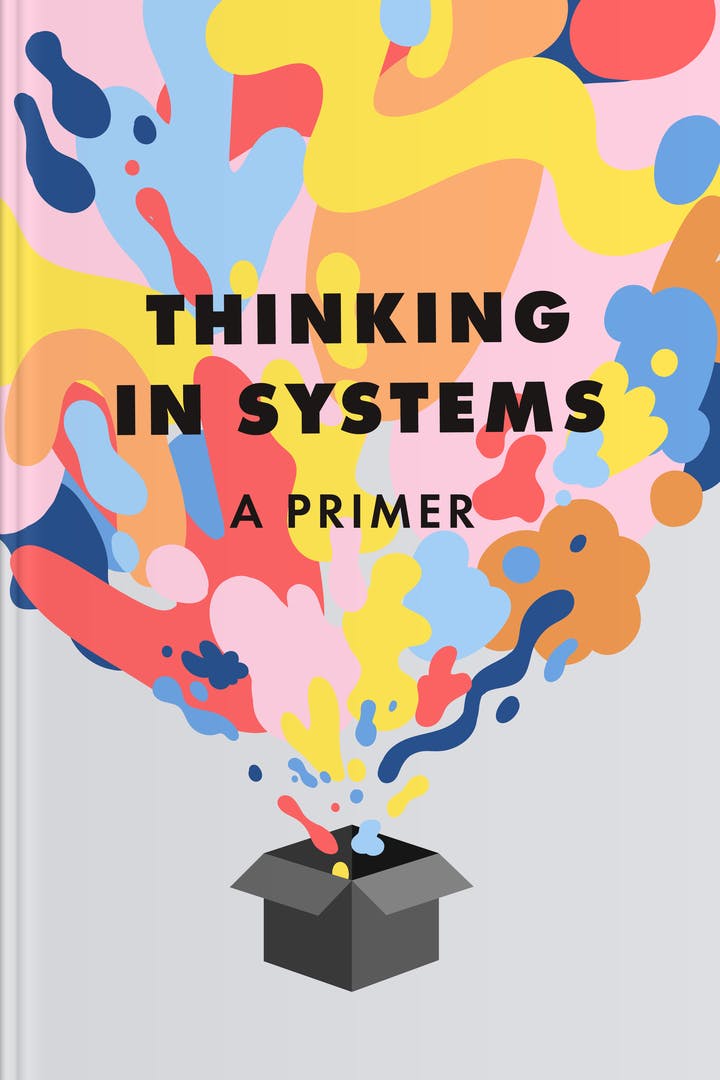 16
16Thinking In Systems
by Donella Meadows, Diana Wright
What is Thinking In Systems about?
"Thinking in Systems: A Primer" offers a comprehensive guide to understanding and analyzing complex systems. Written by an acclaimed author, this book explores the interconnectedness of various systems, from ecosystems to organizations, and provides practical tools for problem-solving and decision-making. With real-world examples and thought-provoking insights, it equips readers with the necessary skills to navigate and influence the intricate systems that shape our world.
Who should read Thinking In Systems
Students and academics studying complex systems and sustainability.
Business leaders seeking to understand and improve organizational dynamics.
Individuals interested in gaining a holistic perspective on global issues.
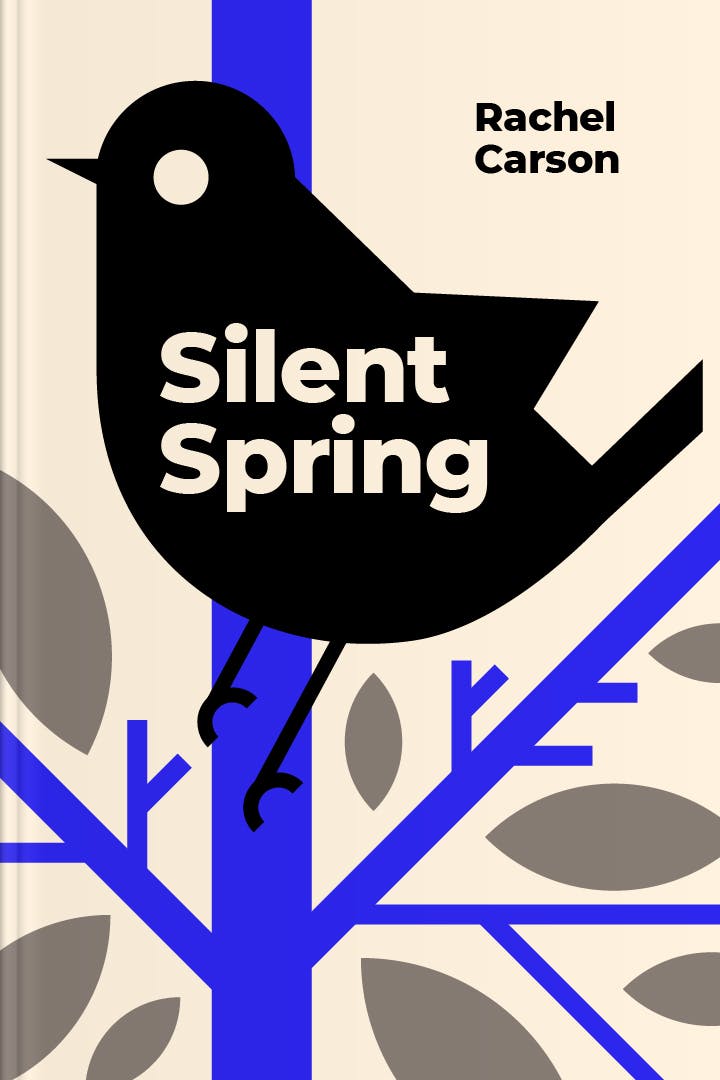 17
17Silent Spring
by Rachel Carson
What is Silent Spring about?
"Silent Spring" is a groundbreaking environmental book that exposes the devastating effects of pesticides on the natural world. Written by a renowned author, this thought-provoking work highlights the alarming decline of bird populations and the subsequent disruption of ecosystems. Through meticulous research and compelling storytelling, the book serves as a wake-up call, urging readers to reconsider the consequences of human actions on the delicate balance of nature.
Who should read Silent Spring
Environmentalists and conservationists concerned about the impact of pesticides.
Scientists and researchers studying the effects of chemical pollution.
General readers interested in understanding the consequences of human actions on nature.
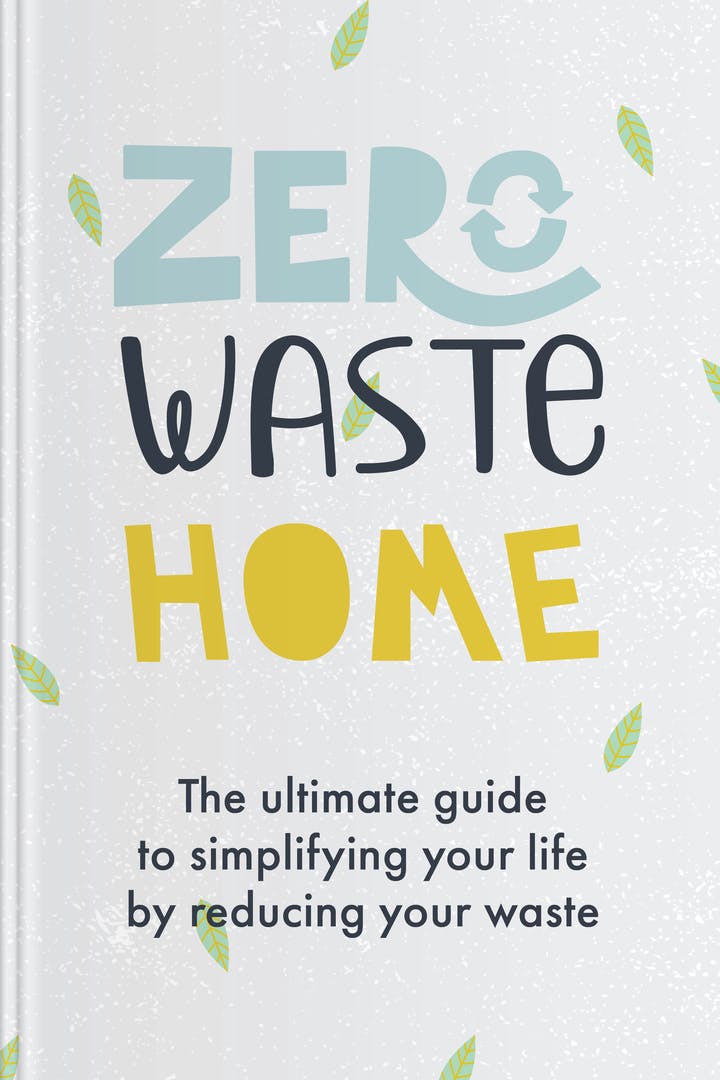 18
18Zero Waste Home
by Bea Johnson
What is Zero Waste Home about?
In this comprehensive guide, the author shares her journey towards a zero waste lifestyle and provides practical tips and strategies for reducing waste in every aspect of daily life. From decluttering and minimizing possessions to adopting sustainable practices in shopping, cooking, and cleaning, this book offers a roadmap for simplifying one's life while making a positive impact on the environment. With personal anecdotes and actionable advice, it inspires readers to embrace a more sustainable and mindful way of living.
Who should read Zero Waste Home
Individuals seeking practical tips and inspiration to live a more sustainable lifestyle.
Environmental enthusiasts looking for effective strategies to minimize waste production.
Anyone interested in adopting a minimalist approach to reduce their ecological footprint.
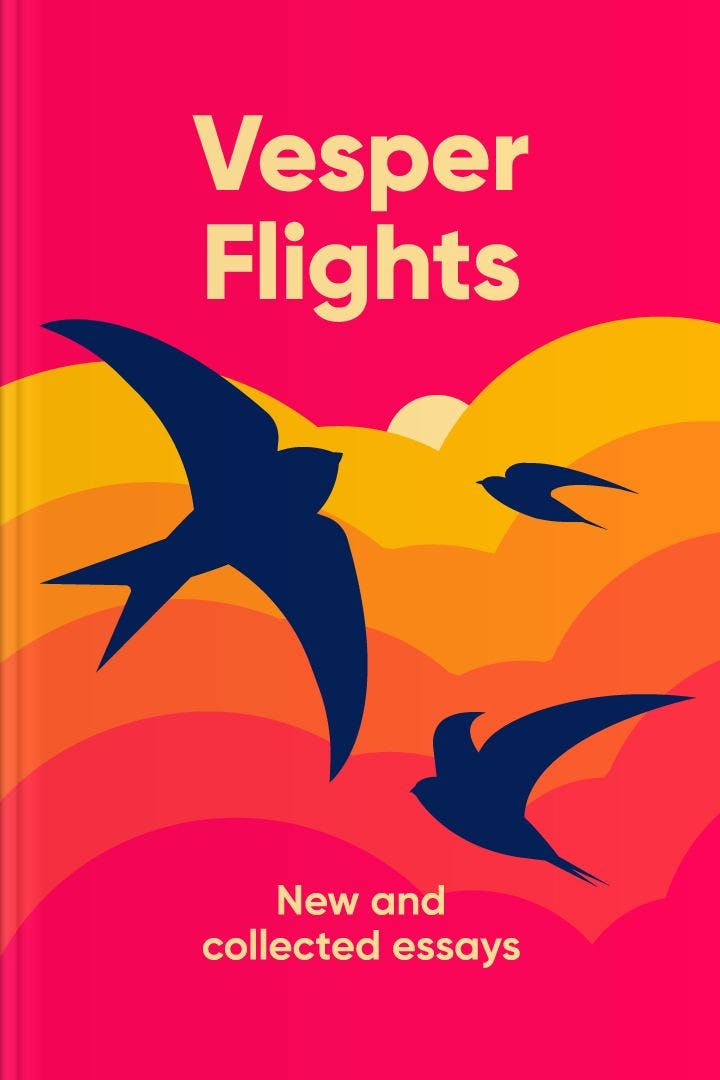 19
19Vesper Flights
by Helen Macdonald
What is Vesper Flights about?
"Vesper Flights" by Helen Macdonald is a captivating collection of essays that explores the intricate connections between humans and the natural world. With her keen observations and lyrical prose, Macdonald delves into various topics, from the mesmerizing flight of swifts to the complexities of migration and the profound impact of our interactions with animals. This thought-provoking book invites readers to contemplate our place within the vast tapestry of life on Earth.
Who should read Vesper Flights
Nature enthusiasts seeking poetic insights into the natural world.
Birdwatchers looking for captivating stories and scientific observations.
Fans of Helen Macdonald's previous work
"H is for Hawk.
"
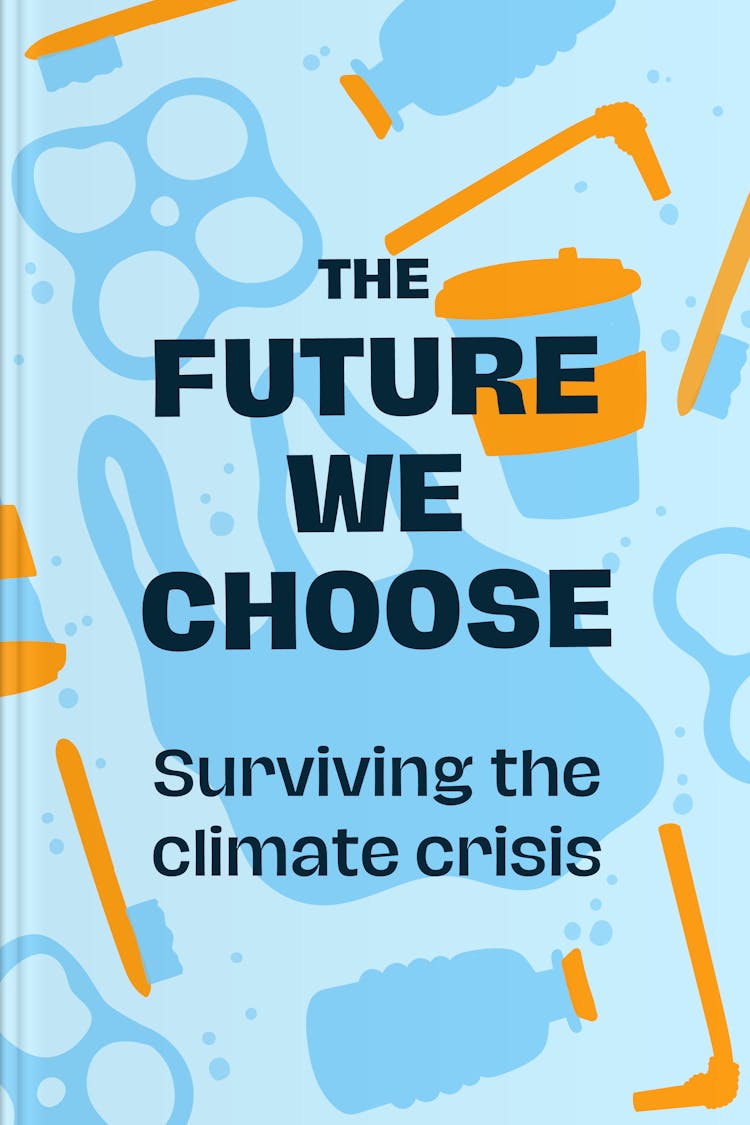 20
20The Future We Choose
by Christiana Figueres, Tom Rivett-Carnac
What is The Future We Choose about?
"The Future We Choose: Surviving the Climate Crisis" is a compelling and urgent book that tackles the pressing issue of climate change. Written by two prominent environmental activists, it offers a hopeful yet realistic roadmap for a sustainable future. Drawing on their experience in international climate negotiations, the authors provide practical solutions and inspiring stories to empower individuals and communities to take action against the climate crisis and create a better world for future generations.
Who should read The Future We Choose
Climate activists and environmentalists seeking practical solutions for the climate crisis.
Policy makers and government officials interested in shaping climate policies.
Individuals concerned about the future of our planet and seeking guidance.
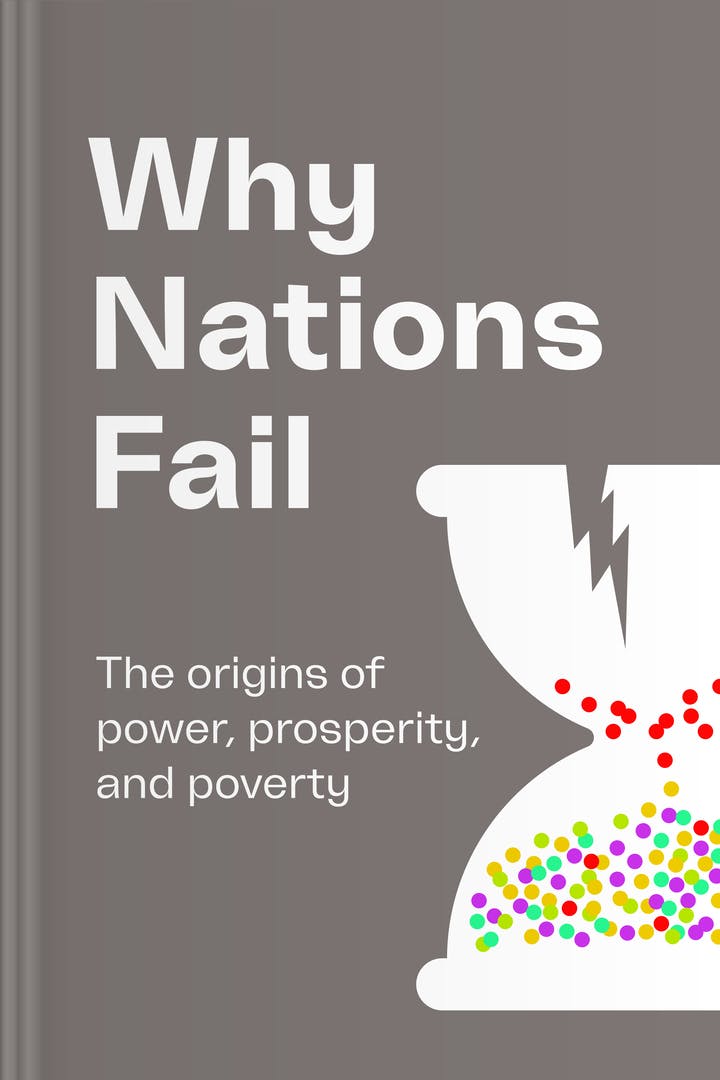 21
21Why Nations Fail
by Daron Acemoglu and James A. Robinson
What is Why Nations Fail about?
"Why Nations Fail" explores the factors that determine the success or failure of nations. Acemoglu and Robinson argue that inclusive political and economic institutions are crucial for long-term prosperity, while extractive institutions lead to poverty and stagnation. Through historical analysis and case studies, the authors examine the origins of power and the impact of institutions on societies, shedding light on the complex dynamics that shape the fate of nations.
Who should read Why Nations Fail
Economists and political scientists interested in understanding the roots of economic inequality.
Policy makers and government officials seeking insights into fostering inclusive growth.
Students and researchers studying the impact of institutions on development.
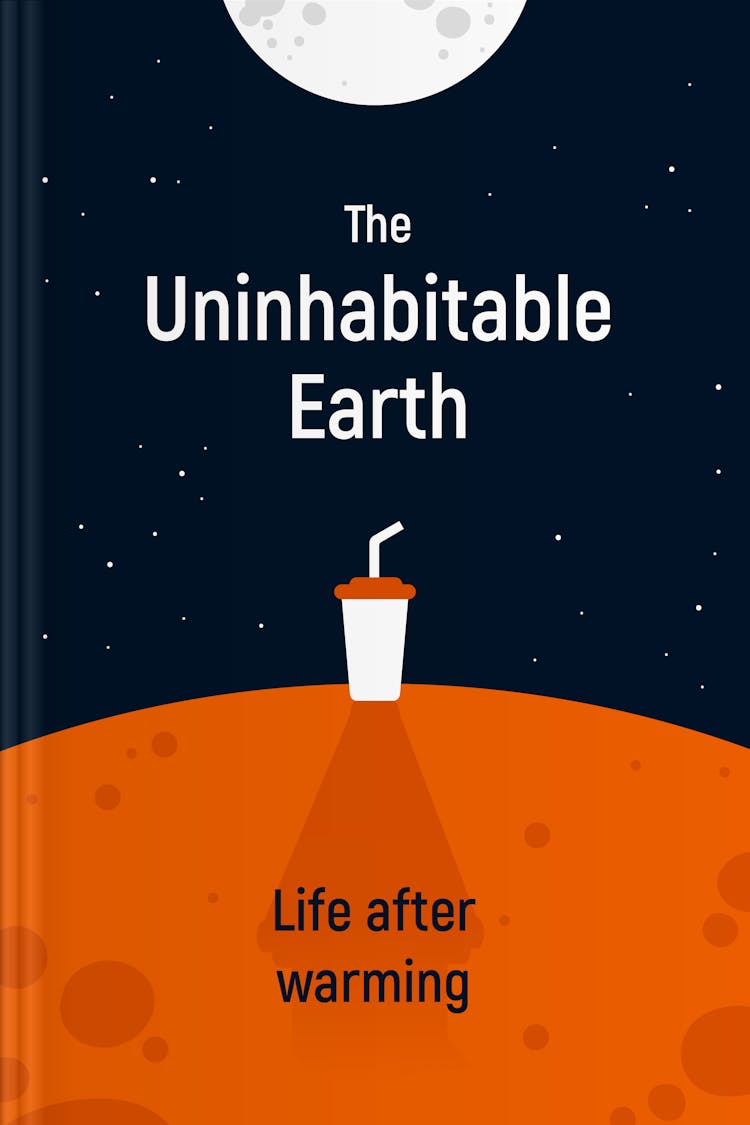 22
22The Uninhabitable Earth
by David Wallace-Wells
What is The Uninhabitable Earth about?
"The Uninhabitable Earth: Life After Warming" by David Wallace-Wells is a thought-provoking and urgent exploration of the devastating consequences of climate change. Through a meticulous analysis of scientific research and real-world examples, the book paints a grim picture of a future plagued by extreme heatwaves, rising sea levels, mass extinctions, and societal collapse. Wallace-Wells challenges readers to confront the harsh realities of our changing planet and emphasizes the need for immediate action to mitigate the impending catastrophe.
Who should read The Uninhabitable Earth
Environmental activists and policymakers concerned about the future of our planet.
Individuals seeking a comprehensive understanding of the devastating effects of climate change.
Students and researchers studying the impact of global warming.
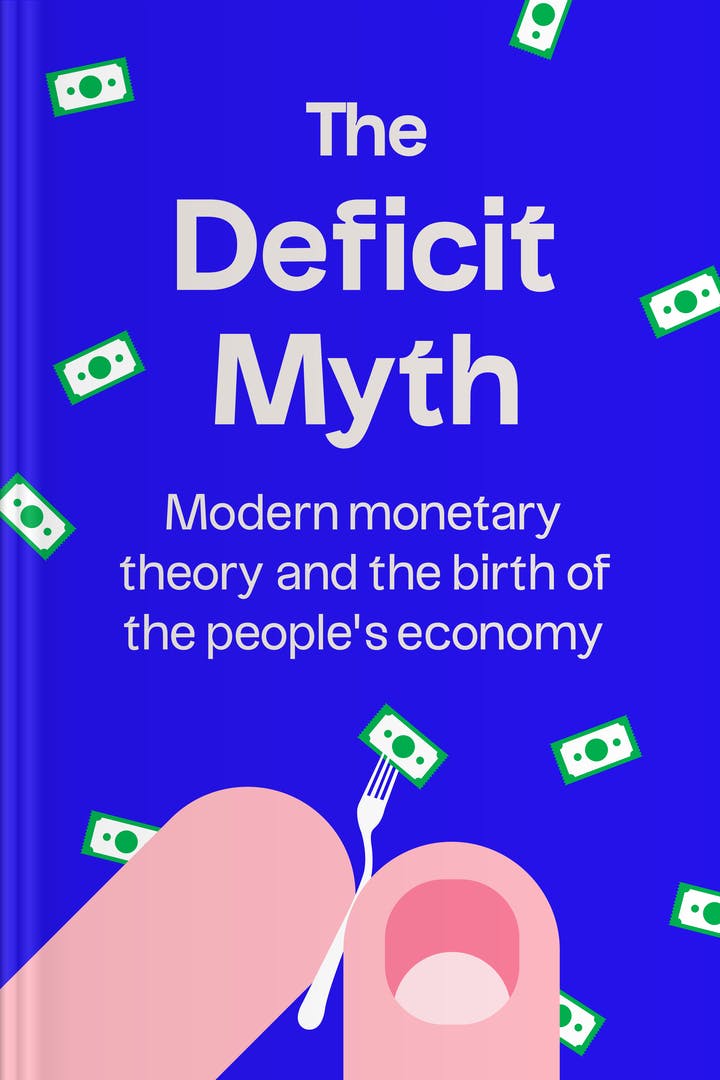 23
23The Deficit Myth
by Stephanie Kelton
What is The Deficit Myth about?
"The Deficit Myth" challenges conventional economic thinking by introducing Modern Monetary Theory (MMT) as a solution to the world's economic problems. Stephanie Kelton, an influential economist, argues that governments have the power to create money and that deficits are not inherently bad. She explores how MMT can be used to create a more equitable and sustainable economy that prioritizes the well-being of the people.
Who should read The Deficit Myth
Economists and policymakers seeking a fresh perspective on monetary theory.
Individuals interested in understanding the impact of government deficits.
Anyone curious about the potential for a new economic paradigm.
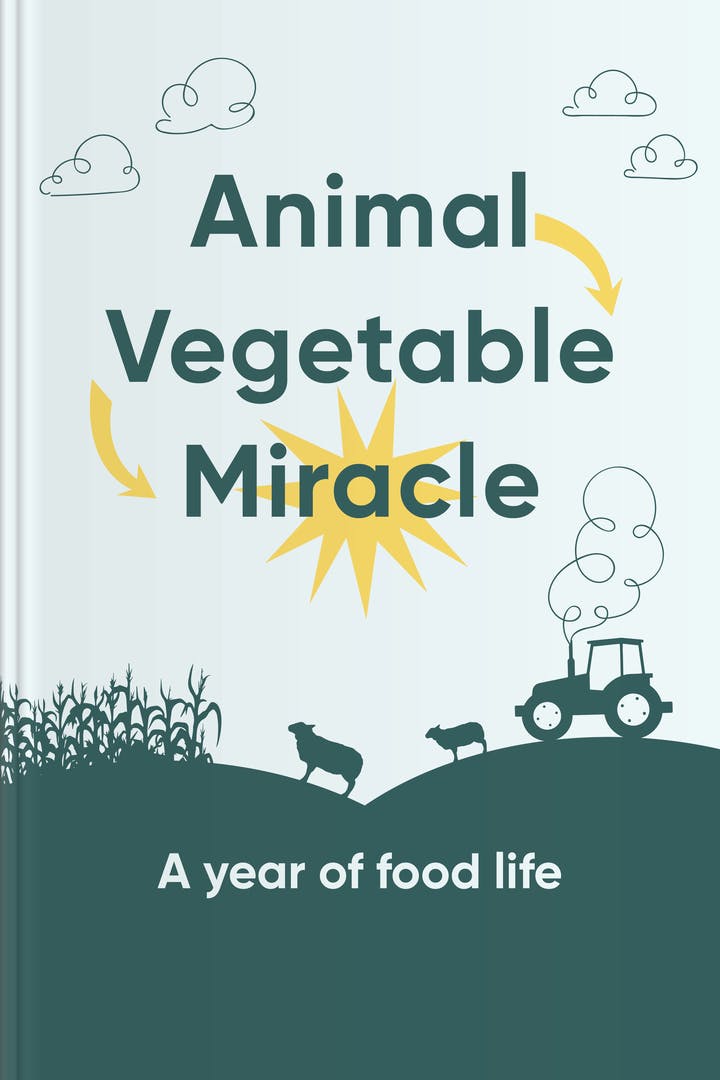 24
24Animal, Vegetable, Miracle
by Barbara Kingsolver, Steven L. Hopp, and Camille Kingsolver
What is Animal, Vegetable, Miracle about?
"Animal, Vegetable, Miracle: Year of Food Life" is a captivating non-fiction book that follows the journey of a family as they commit to a year of eating only locally produced food. Written by a trio of authors, the book explores the challenges, joys, and revelations they experience while growing their own food, raising animals, and supporting local farmers. This eye-opening account delves into the importance of sustainable agriculture, the impact of food choices on the environment, and the beauty of reconnecting with nature's bounty.
Who should read Animal, Vegetable, Miracle
Individuals interested in sustainable living and local food systems.
Environmentalists and those concerned about the impact of industrial agriculture.
Food enthusiasts looking for inspiration and knowledge about seasonal eating.
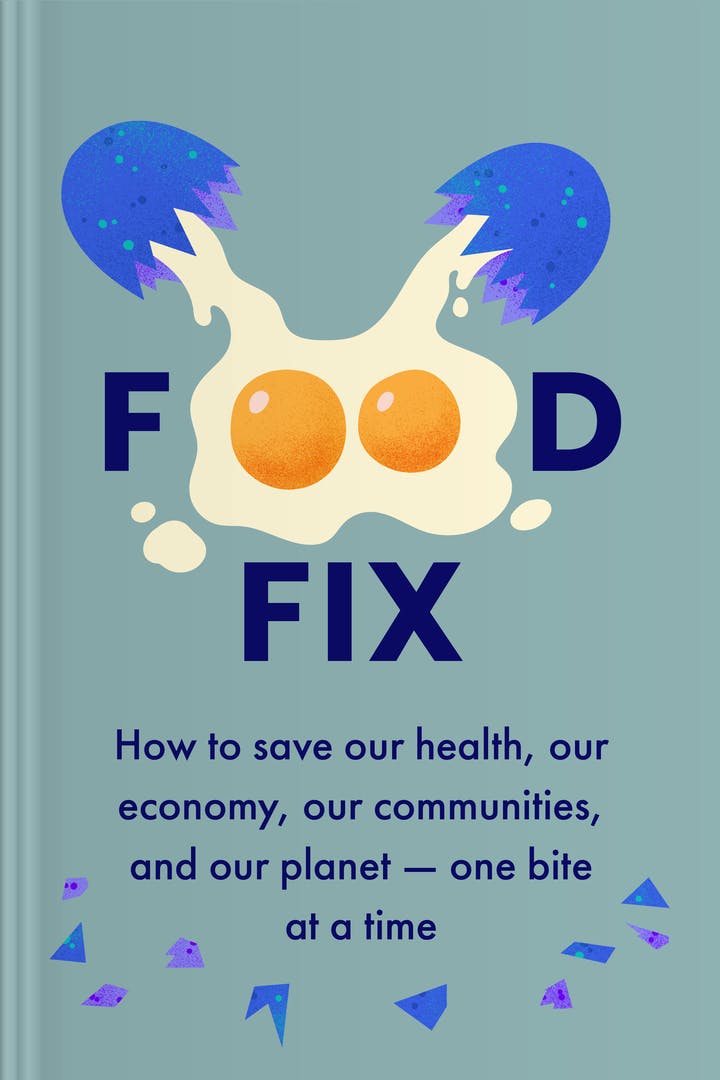 25
25Food Fix
by Dr. Mark Hyman
What is Food Fix about?
In "Food Fix," Dr. Mark Hyman presents a compelling argument for the urgent need to transform our broken food system. Exploring the detrimental effects of industrialized food on our health, economy, communities, and the environment, Hyman offers practical solutions to reclaim our well-being and create a sustainable future. With a focus on the power of individual choices, this book serves as a guide to making informed decisions about what we eat, ultimately leading to a healthier and more resilient world.
Who should read Food Fix
Health-conscious individuals seeking sustainable solutions for their well-being.
Economists and policymakers interested in the intersection of food and economy.
Environmentalists and community activists advocating for a healthier planet.
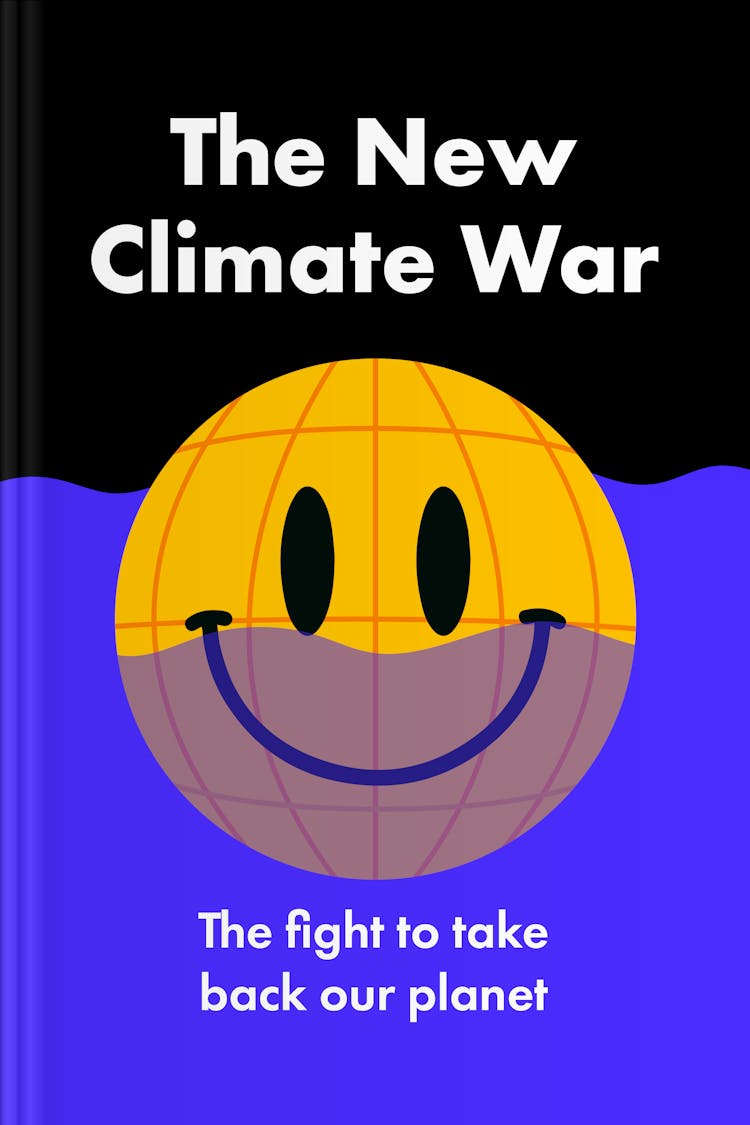 26
26The New Climate War
by Michael E. Mann
What is The New Climate War about?
"The New Climate War" by Michael E. Mann is a compelling and urgent exploration of the ongoing battle against climate change. Mann, a renowned climate scientist, exposes the tactics employed by powerful interests to undermine climate action and perpetuate the status quo. With a wealth of scientific evidence and insightful analysis, he offers a roadmap for individuals and communities to reclaim the planet and combat the forces that hinder progress in addressing the climate crisis.
Who should read The New Climate War
Environmental activists and advocates seeking strategies to combat climate change.
Policy makers and politicians interested in understanding climate science and policy.
General readers curious about the current state of the climate crisis.
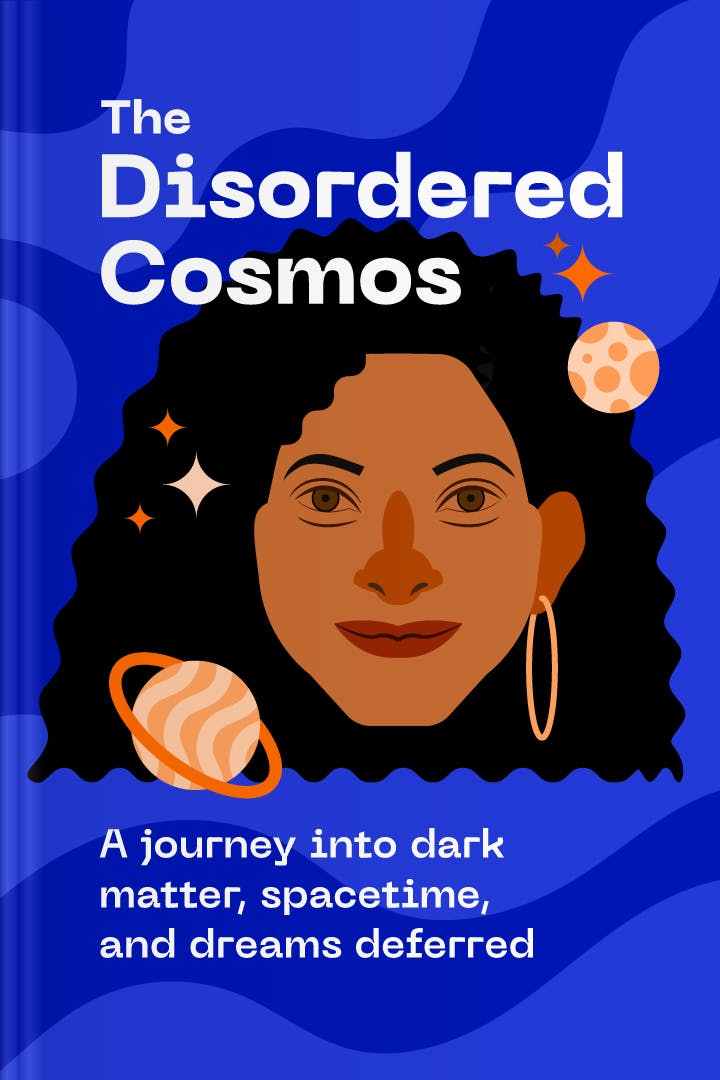 27
27The Disordered Cosmos
by Chanda Prescod-Weinstein, Ph.D.
What is The Disordered Cosmos about?
"The Disordered Cosmos" takes readers on an enlightening journey through the fascinating realms of dark matter, spacetime, and the unfulfilled dreams of marginalized scientists. Written by Chanda Prescod-Weinstein, Ph.D., this thought-provoking book explores the intersections of race, gender, and physics, challenging traditional scientific narratives and offering a fresh perspective on the cosmos. With a blend of personal anecdotes, scientific insights, and social commentary, this book invites readers to question and reimagine our understanding of the universe.
Who should read The Disordered Cosmos
Science enthusiasts seeking a comprehensive exploration of dark matter and spacetime.
Students and researchers in astrophysics and theoretical physics.
Individuals interested in the intersection of science and social justice.
 28
28The Future is Asian
by Parag Khanna
What is The Future is Asian about?
"The Future is Asian" explores the rising influence and power of Asia in the global landscape. Parag Khanna delves into the economic, political, and cultural shifts taking place across the continent, highlighting the region's potential to shape the world's future. With a focus on the interconnectedness of Asian nations and their impact on global affairs, this book offers a compelling analysis of the Asian century and its implications for the rest of the world.
Who should read The Future is Asian
Global business leaders seeking insights into the growing influence of Asia.
Policy makers and diplomats interested in understanding Asia's geopolitical dynamics.
Students and academics studying the economic and cultural rise of Asia.
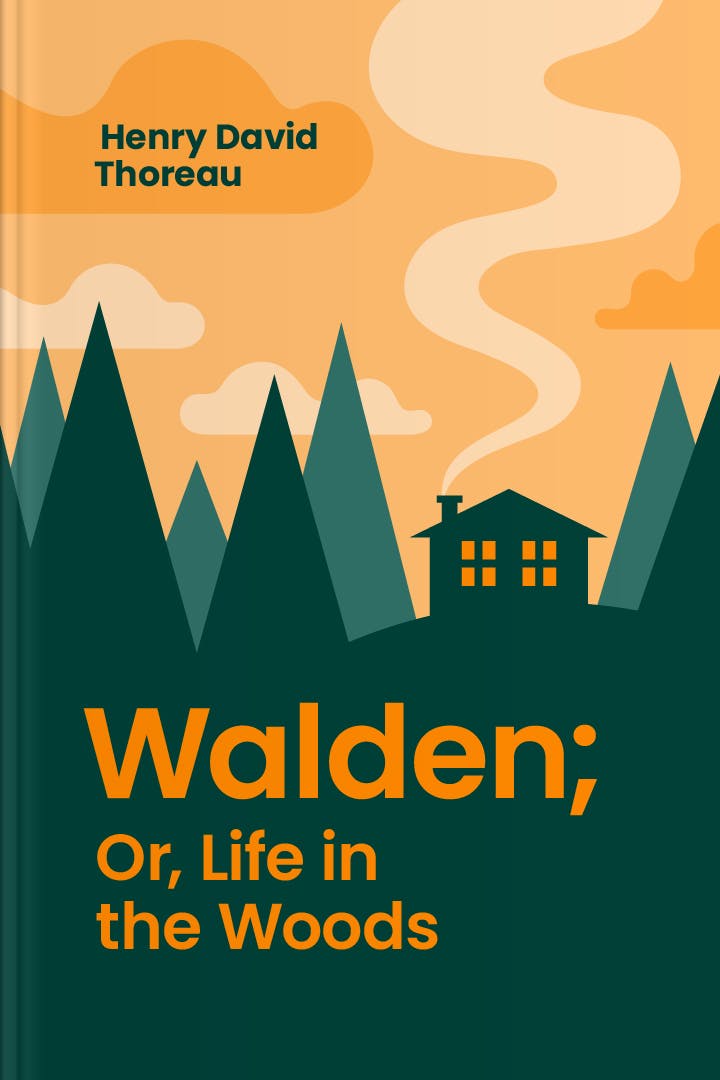 29
29Walden; or, Life in the Woods
by Henry David Thoreau
What is Walden; or, Life in the Woods about?
In this classic work, the author recounts his two-year experience living in a secluded cabin near Walden Pond. Through introspection and observation of nature, he reflects on the simplicity of life, the pursuit of self-reliance, and the importance of living deliberately. Thoreau's profound insights and poetic prose invite readers to contemplate the essence of existence and the true meaning of freedom in the midst of a rapidly changing world.
Who should read Walden; or, Life in the Woods
Nature enthusiasts seeking a deeper connection with the wilderness.
Philosophers and thinkers exploring the concept of simplicity and self-reliance.
Individuals yearning for a break from modern society's fast-paced lifestyle.
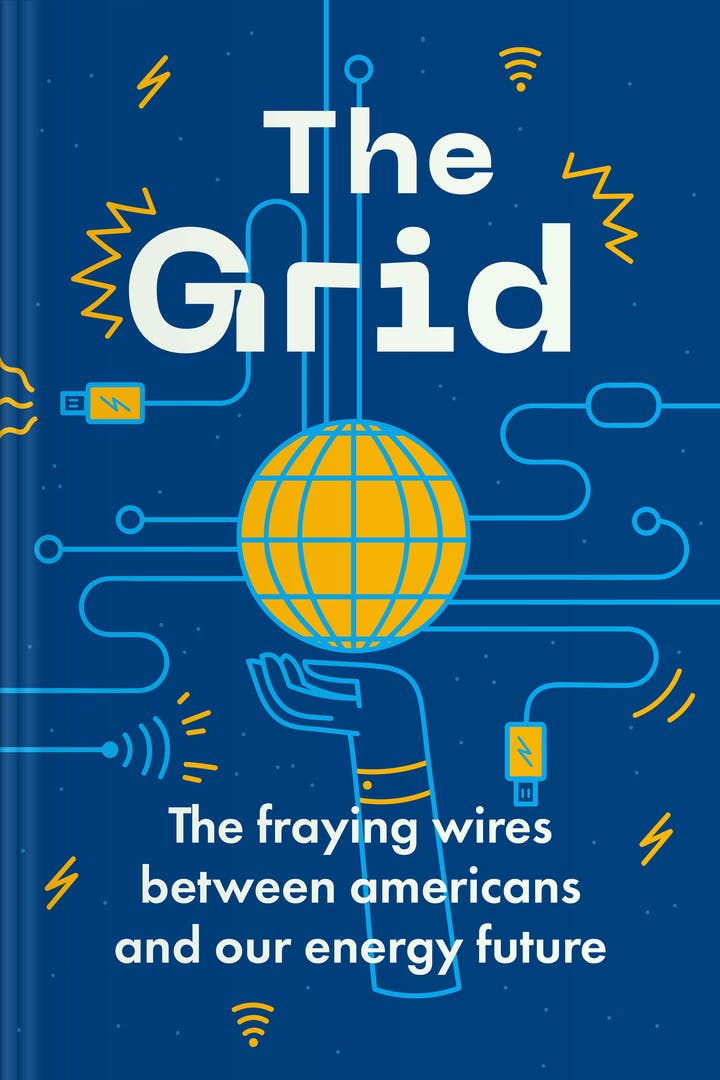 30
30The Grid
by Gretchen Bakke, Ph.D
What is The Grid about?
"The Grid" by Gretchen Bakke, Ph.D. explores the intricate relationship between Americans and our energy future. Bakke delves into the complex world of the electrical grid, examining its history, vulnerabilities, and the challenges it faces in the modern era. With a blend of engaging storytelling and insightful analysis, she highlights the fraying wires that connect us to our energy sources, shedding light on the urgent need for a sustainable and resilient energy infrastructure.
Who should read The Grid
Energy policymakers and industry professionals seeking insights into America's power grid challenges.
Environmentalists and sustainability advocates interested in the future of energy.
General readers curious about the complex relationship between Americans and energy.
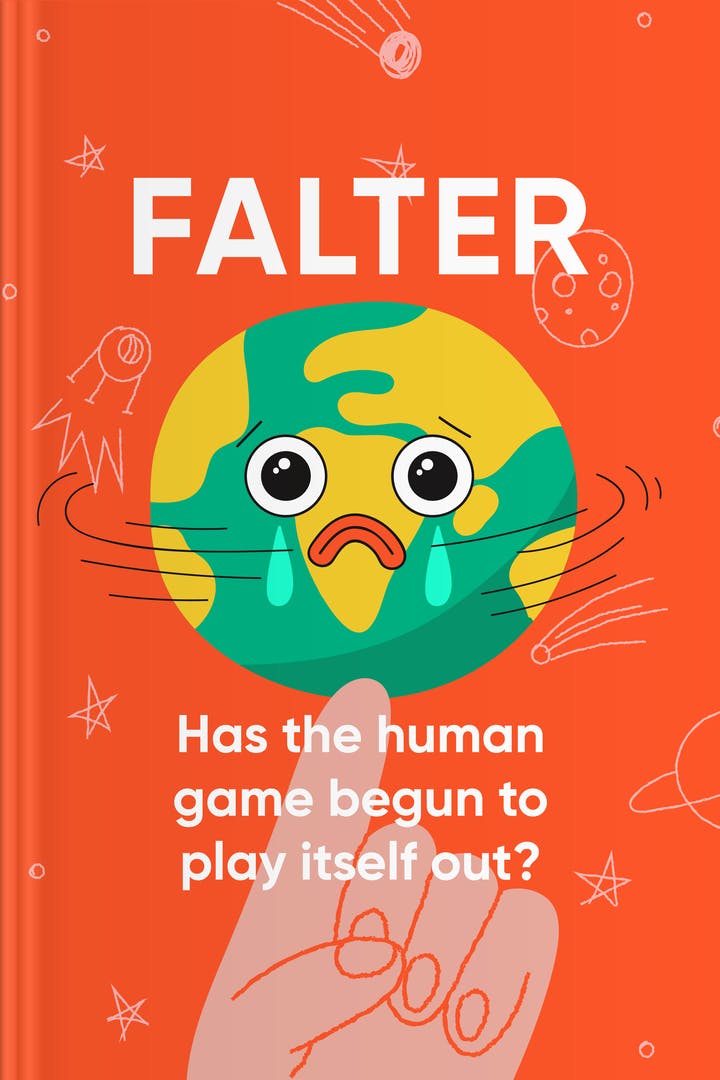 31
31Falter
by Bill McKibben
What is Falter about?
In this thought-provoking book, the author delves into the pressing issues of our time, exploring the threats posed by climate change and technological advancements. Bill McKibben raises crucial questions about the future of humanity, examining the consequences of our actions and the potential for a faltering human game. With a blend of scientific analysis and philosophical reflections, this book serves as a wake-up call, urging readers to consider the urgent need for change in order to secure a sustainable future.
Who should read Falter
Environmentalists and climate change activists seeking a comprehensive analysis.
Policy makers and scientists interested in the future of humanity.
Individuals concerned about the long-term survival of our planet.
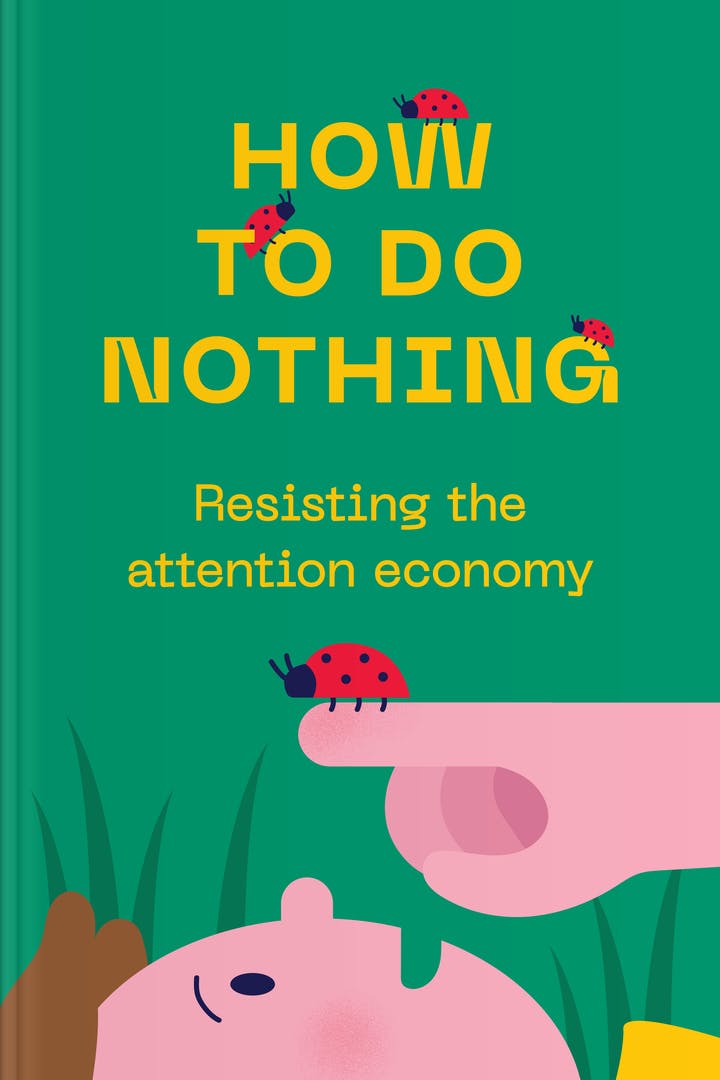 32
32How to Do Nothing
by Jenny Odell
What is How to Do Nothing about?
In this thought-provoking book, the author explores the overwhelming impact of the attention economy on our lives and offers a refreshing perspective on reclaiming our time and attention. Through insightful anecdotes and practical advice, she encourages readers to resist the constant demands of technology and embrace the power of doing nothing. With a blend of philosophy, art, and personal experiences, this book serves as a guide to finding meaning and connection in a world obsessed with productivity and constant stimulation.
Who should read How to Do Nothing
Individuals seeking to reclaim their time and attention from the digital world.
Artists and creatives looking for inspiration to break free from productivity culture.
Social activists interested in exploring the impact of technology on society.
 33
33Braiding Sweetgrass
by Robin Wall Kimmerer, Dr.
What is Braiding Sweetgrass about?
In this captivating book, the author, a renowned scientist and member of the Potawatomi Nation, weaves together indigenous wisdom and scientific knowledge to explore the profound teachings of plants. With a deep reverence for nature, she shares personal stories, ecological insights, and traditional wisdom, offering a powerful reminder of our interconnectedness with the natural world and the importance of nurturing a reciprocal relationship with the Earth.
Who should read Braiding Sweetgrass
Nature enthusiasts seeking a deeper understanding of the interconnectedness of plants and humans.
Scientists and researchers interested in exploring the intersection of indigenous wisdom and scientific knowledge.
Environmentalists and activists looking for inspiration and guidance on sustainable living.
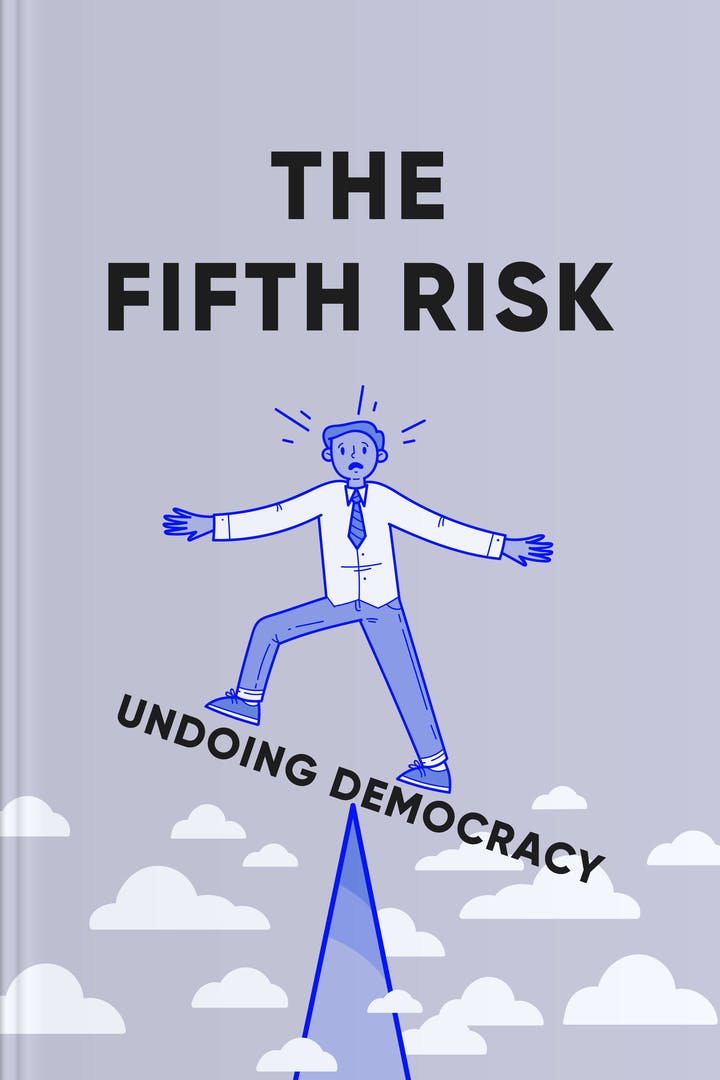 34
34The Fifth Risk
by Michael Lewis
What is The Fifth Risk about?
"The Fifth Risk: Undoing Democracy" by Michael Lewis is a thought-provoking exploration of the consequences of neglecting the vital functions of the US government. Through compelling narratives, Lewis exposes the risks posed by the Trump administration's lack of understanding and appreciation for the complex systems that ensure the safety and well-being of the nation. This eye-opening book serves as a wake-up call, urging readers to recognize the importance of competent leadership and the potential consequences of its absence.
Who should read The Fifth Risk
Politically engaged citizens seeking to understand the risks to democracy.
Government officials and policymakers concerned about the future of democracy.
Individuals interested in the inner workings and challenges of government.
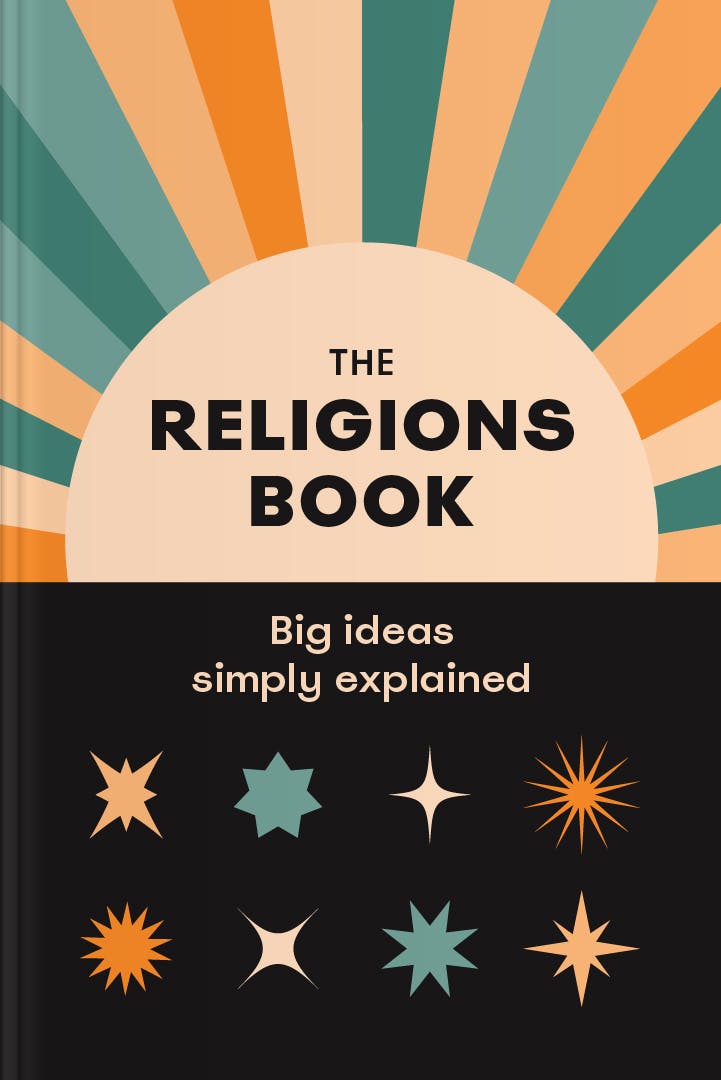 35
35The Religions Book
by Shulamit Ambalu, Michael D. Coogan, Eve Levavi Feinstein, Paul Freedman, Neil Philip, Andrew Stob
What is The Religions Book about?
"The Religions Book: Big Ideas Simply Explained" is a comprehensive guide that explores the major religions of the world, providing a clear and concise overview of their beliefs, practices, and historical significance. Written by a team of experts, this book presents complex religious concepts in an accessible manner, making it an invaluable resource for anyone seeking to understand the diverse and fascinating world of religion.
Who should read The Religions Book
Students studying world religions seeking a comprehensive and accessible guide.
Individuals curious about different religious beliefs and practices.
Readers interested in exploring the historical and cultural impact of religions.
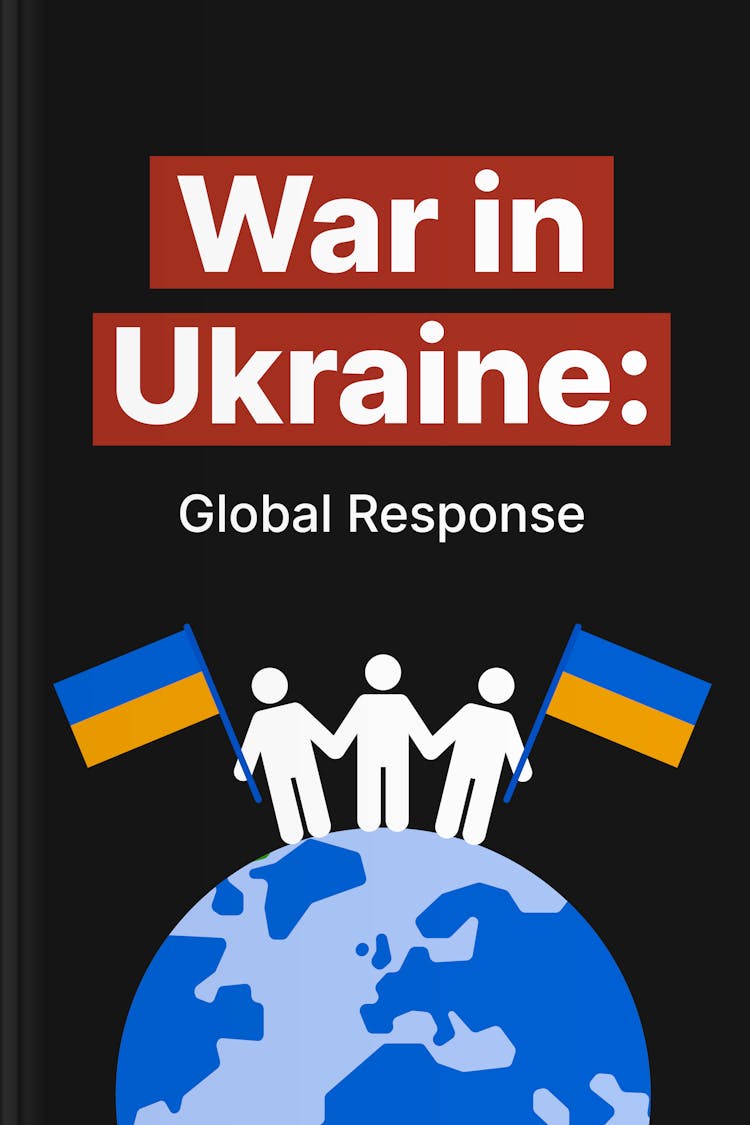 36
36Global Response
by based on articles by Vox, BBC, The New York Times, The Guardian, Vice, Politico, and Radio Liberty
What is Global Response about?
"Global Response" is a thought-provoking compilation of articles from reputable sources such as Vox, BBC, The New York Times, The Guardian, Vice, Politico, and Radio Liberty. This book delves into pressing global issues, offering a comprehensive analysis of the world's most critical challenges. From climate change to political unrest, the book provides a well-rounded perspective on the complex issues shaping our world today. It is a must-read for those seeking a deeper understanding of the global landscape.
Who should read Global Response
Individuals interested in understanding global politics and current affairs.
Journalists and researchers seeking comprehensive analysis of global events.
Policy makers and diplomats looking for insights into international relations.
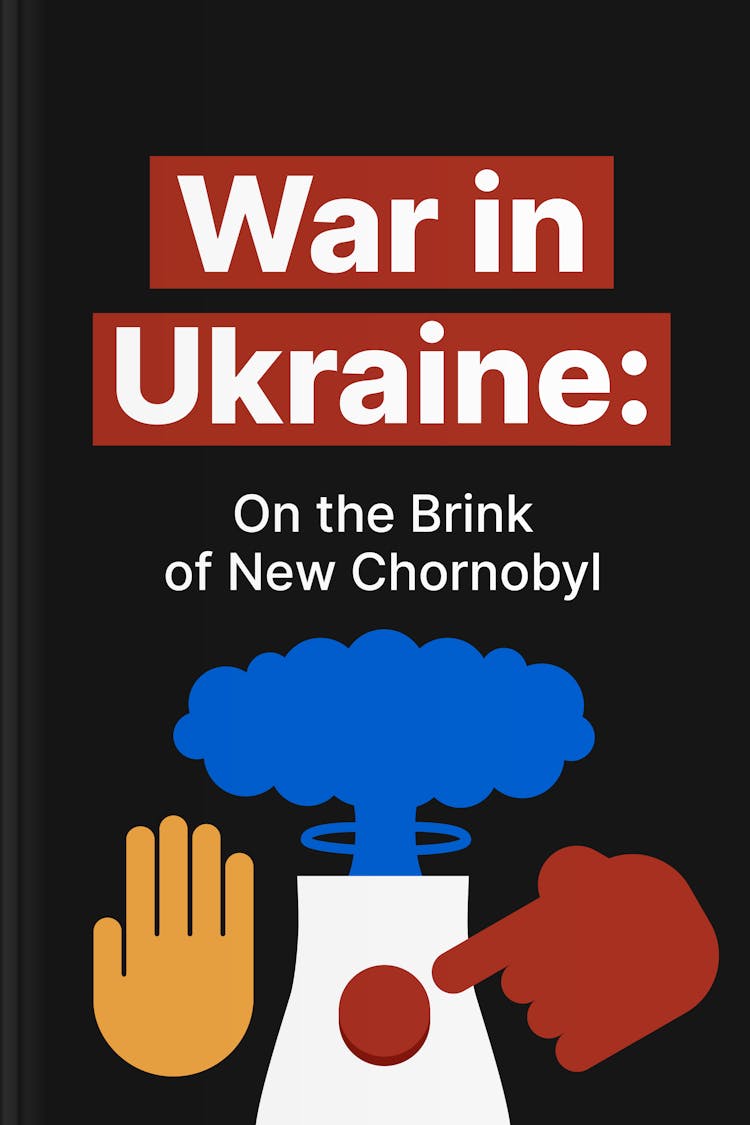 37
37On the Brink of New Chornobyl
by based on articles by Vox, BBC, The New York Times, The Guardian, Vice, Politico, and Radio Liberty
What is On the Brink of New Chornobyl about?
"On the Brink of New Chornobyl" is a gripping compilation of articles by renowned news outlets such as Vox, BBC, The New York Times, The Guardian, Vice, Politico, and Radio Liberty. This book delves into the alarming events and potential disasters that could lead to a new Chornobyl-like catastrophe. With in-depth analysis and expert insights, it sheds light on the pressing issues surrounding nuclear power, environmental risks, and the urgent need for global action.
Who should read On the Brink of New Chornobyl
Environmental activists and policymakers concerned about nuclear energy.
Journalists and researchers interested in the Chernobyl disaster.
General readers seeking a comprehensive understanding of Chernobyl's aftermath.
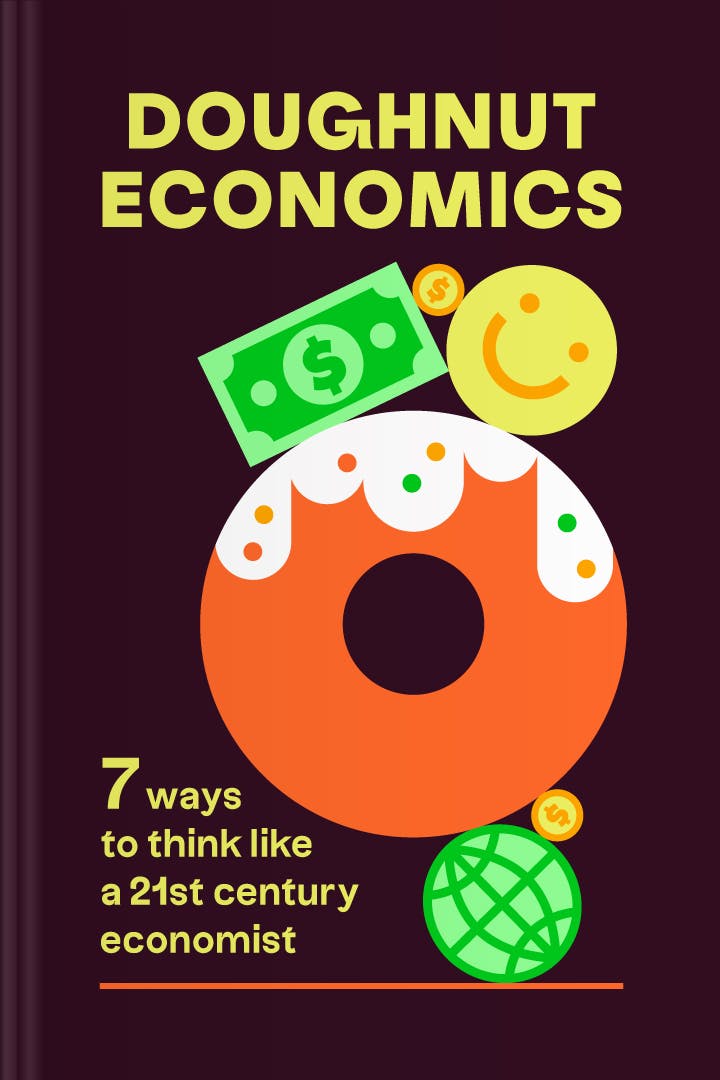 38
38Doughnut Economics
by Kate Raworth
What is Doughnut Economics about?
In this thought-provoking book, the author challenges traditional economic theories and offers a fresh perspective on how we should approach economics in the 21st century. Raworth introduces seven key principles that encourage a more sustainable and inclusive economic system, emphasizing the importance of social justice and environmental sustainability. With engaging examples and insightful analysis, she presents a compelling argument for reimagining economics to create a better future for all.
Who should read Doughnut Economics
Economists and policymakers seeking innovative approaches to address global challenges.
Students and academics interested in rethinking traditional economic theories.
Individuals passionate about sustainable development and creating a fairer society.
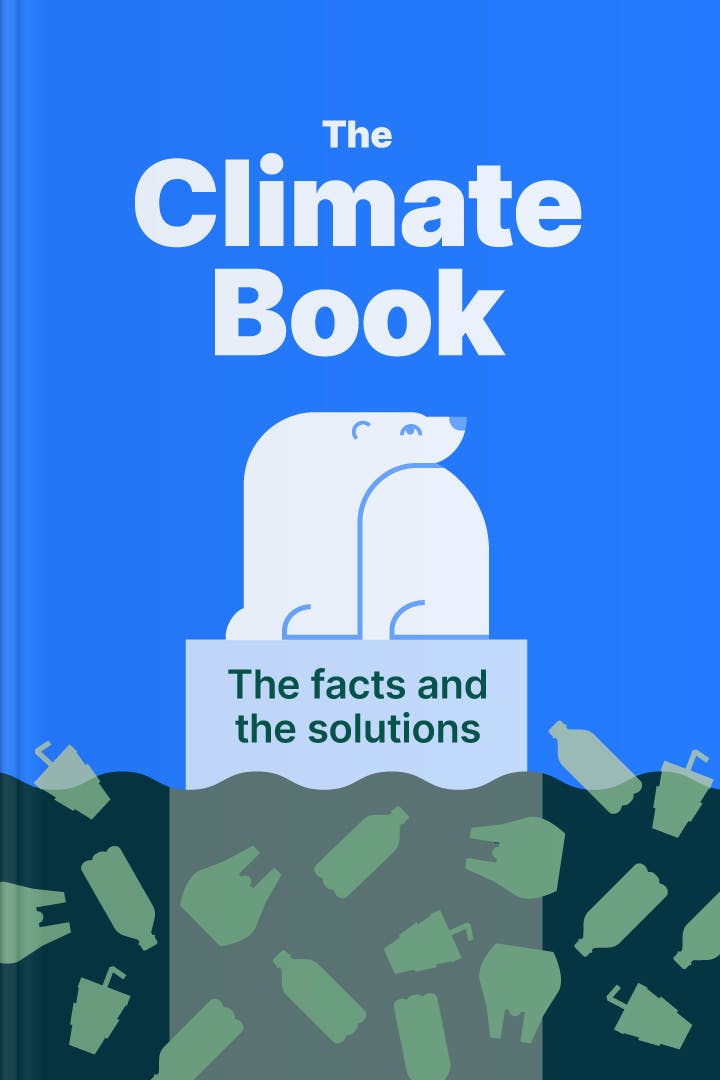 39
39The Climate Book
by Greta Thunberg
What is The Climate Book about?
"The Climate Book" by Greta Thunberg is a comprehensive guide that presents the undeniable facts about climate change and offers practical solutions to combat this global crisis. With a clear and urgent voice, the author highlights the need for immediate action, providing readers with a deeper understanding of the environmental challenges we face and empowering them to make a positive impact on the future of our planet.
Who should read The Climate Book
Students and young activists seeking comprehensive knowledge on climate change.
Policy makers and government officials interested in implementing sustainable solutions.
General readers looking for a concise and informative guide on climate change.
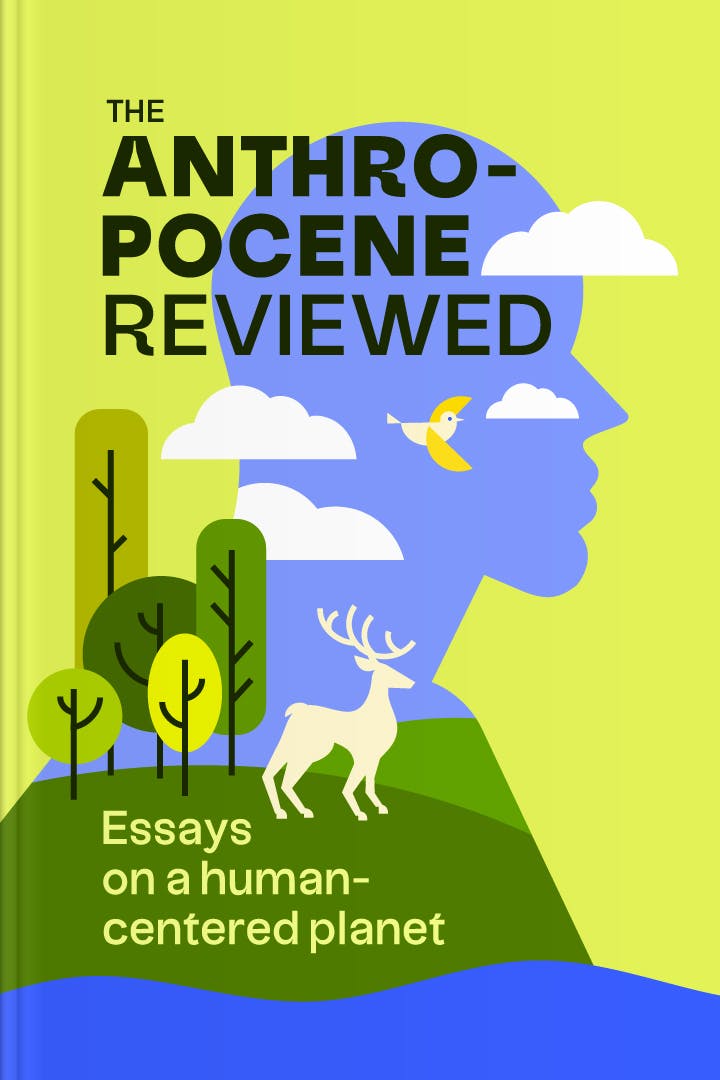 40
40The Anthropocene Reviewed
by John Green
What is The Anthropocene Reviewed about?
"The Anthropocene Reviewed" is a collection of thought-provoking essays by a renowned author. With a focus on the human impact on our planet, the book explores various aspects of our existence, from the mundane to the extraordinary. Through insightful and witty observations, the author delves into topics such as technology, animals, and historical events, offering a unique perspective on the human experience in the Anthropocene era.
Who should read The Anthropocene Reviewed
Fans of John Green's thought-provoking and insightful writing style.
Environmentalists and those interested in the impact of humans on the planet.
Readers seeking a unique blend of personal anecdotes and scientific analysis.
